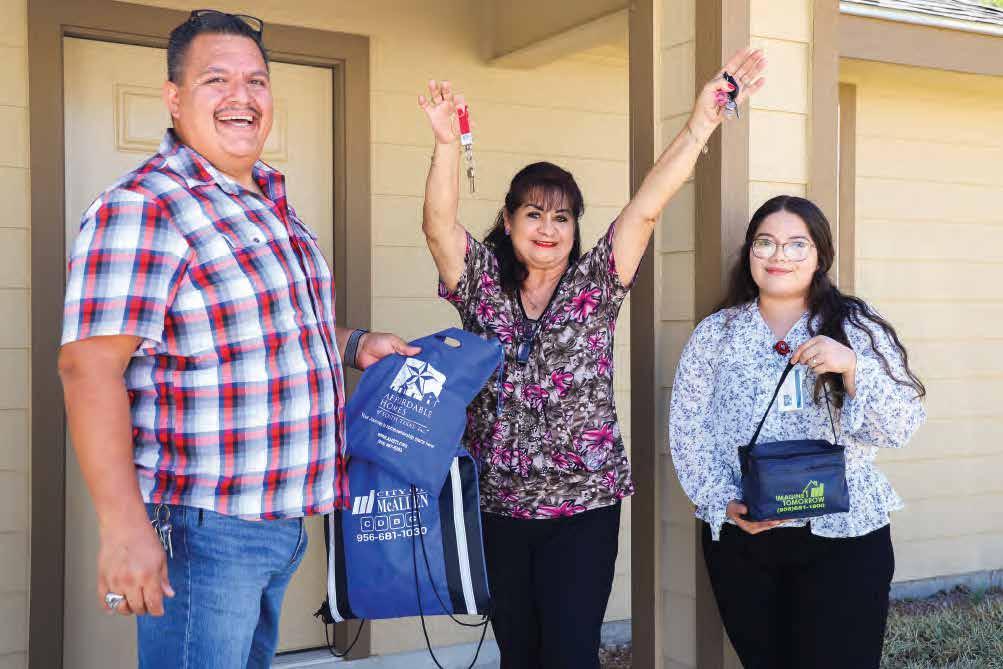

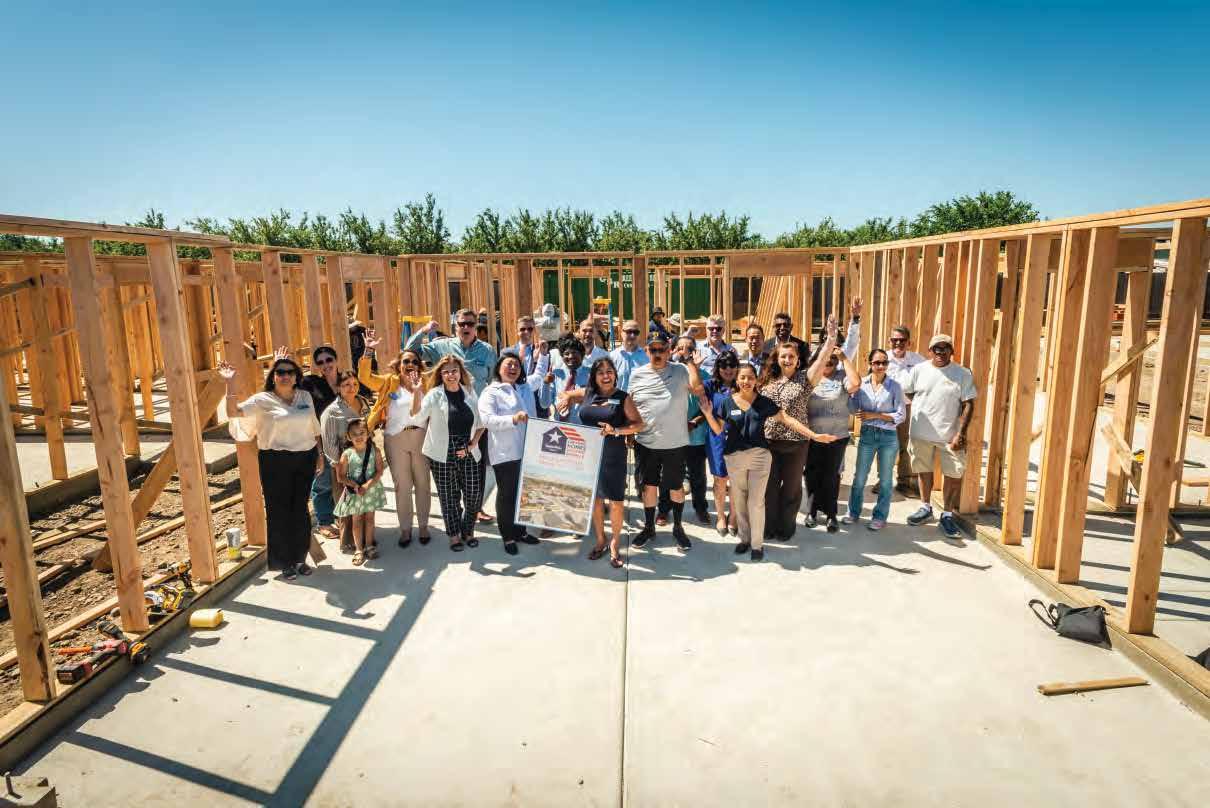
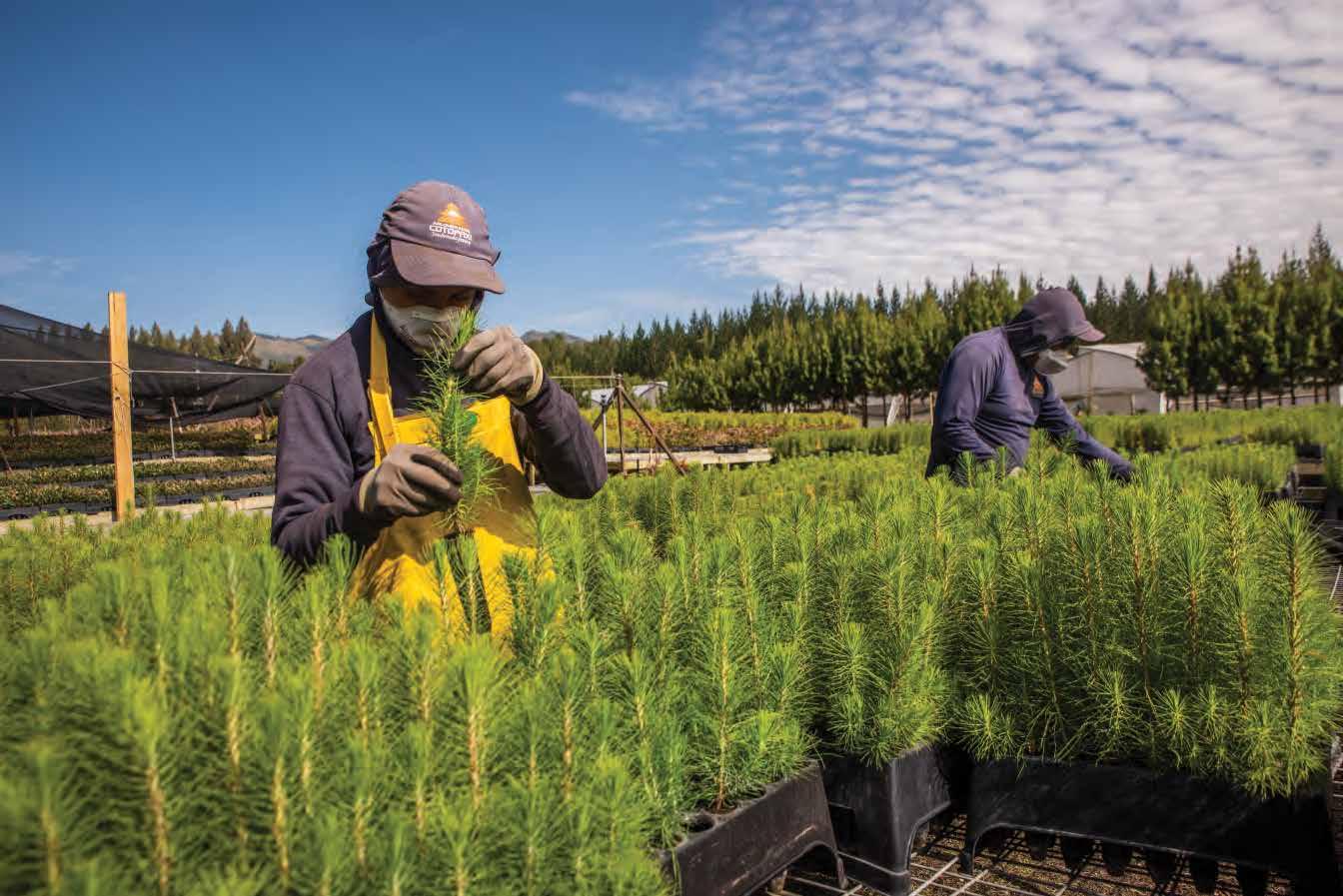

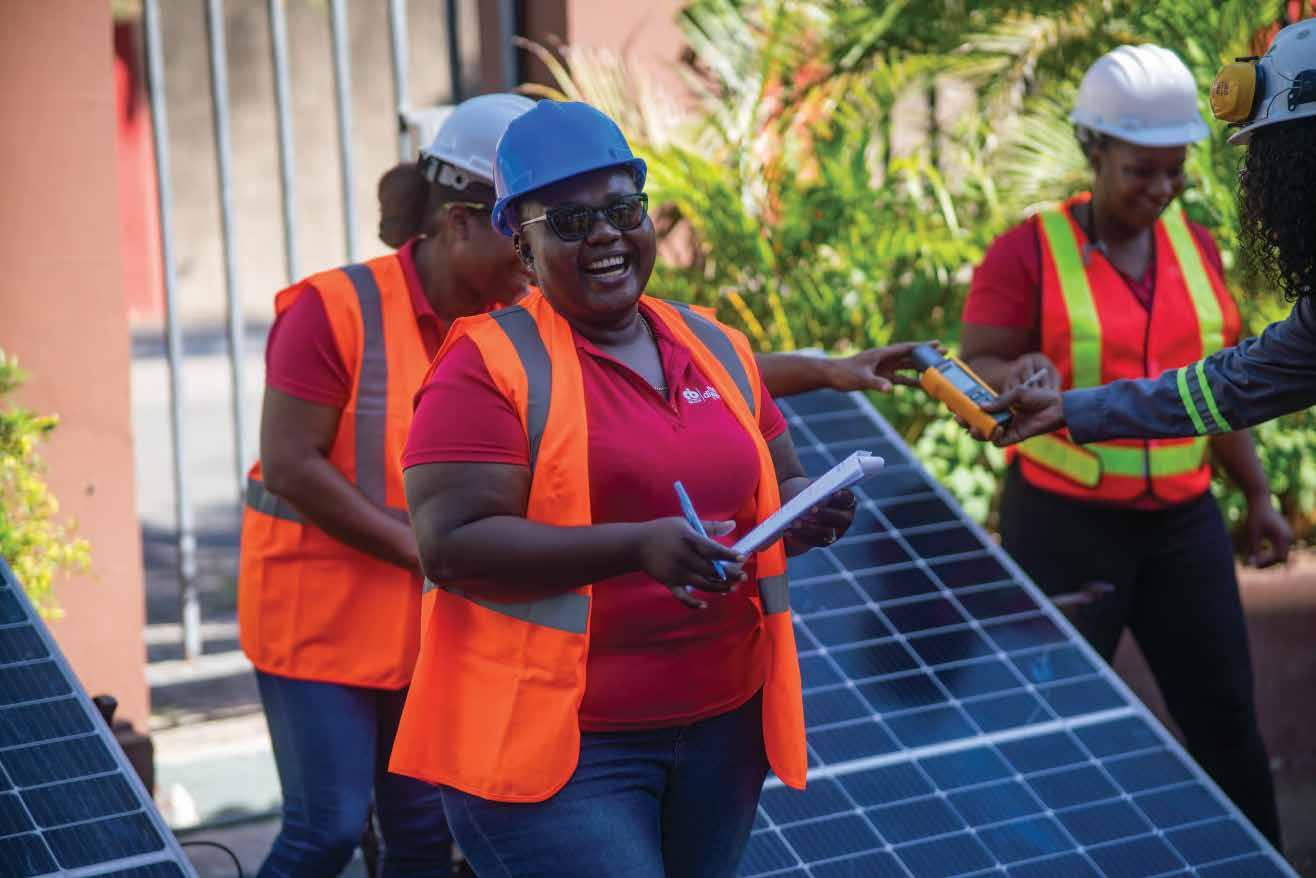









In a time of global uncertainty, our portfolio continues to deliver meaningful, measurable change. This year’s report explores how resi ience—of our partners, our capital, and our approach—is essential to building a more inclusive and sustainable financial system.
Thirty years ago, in October 1995, we sold our first Community Investment Note®. In 1996, we deployed $1.4 million to four borrowers. Since then, we’ve invested more than $2 billion in 600 borrowers across 117 countries, expanding from core sectors of affordable housing, microfinance, and community development into new high-impact areas such as renewable energy, environmental sustainability, and small business lending. We’re grateful that many of you have been with us on this journey for most or all of this time—we couldn’t have done t without your support!
Our success is rooted in listening—to our portfolio partners, our nvestors, and the communities we serve. Through the Community Investment Note® we have helped seed new markets, scaled proven models, and even created new products. That’s because the Community Investment Note® Portfolio is more than a source of capita t’s a aunchpad for nnovation. Several of our products and programs—like the Cut Carbon Note®—started as a single loan in the Community Investment Note® portfolio.
As a Community Investment Note® investor, your capital powers all of this—from lending in communities to building new products that continue to expand the impact investing sector and allow more people to put their portfolios to work for a better world.
Thank you for helping us reimagine what is possible to achieve through investment, and for partnering with us to direct capital to solutions that people and the planet need.
With gratitude,
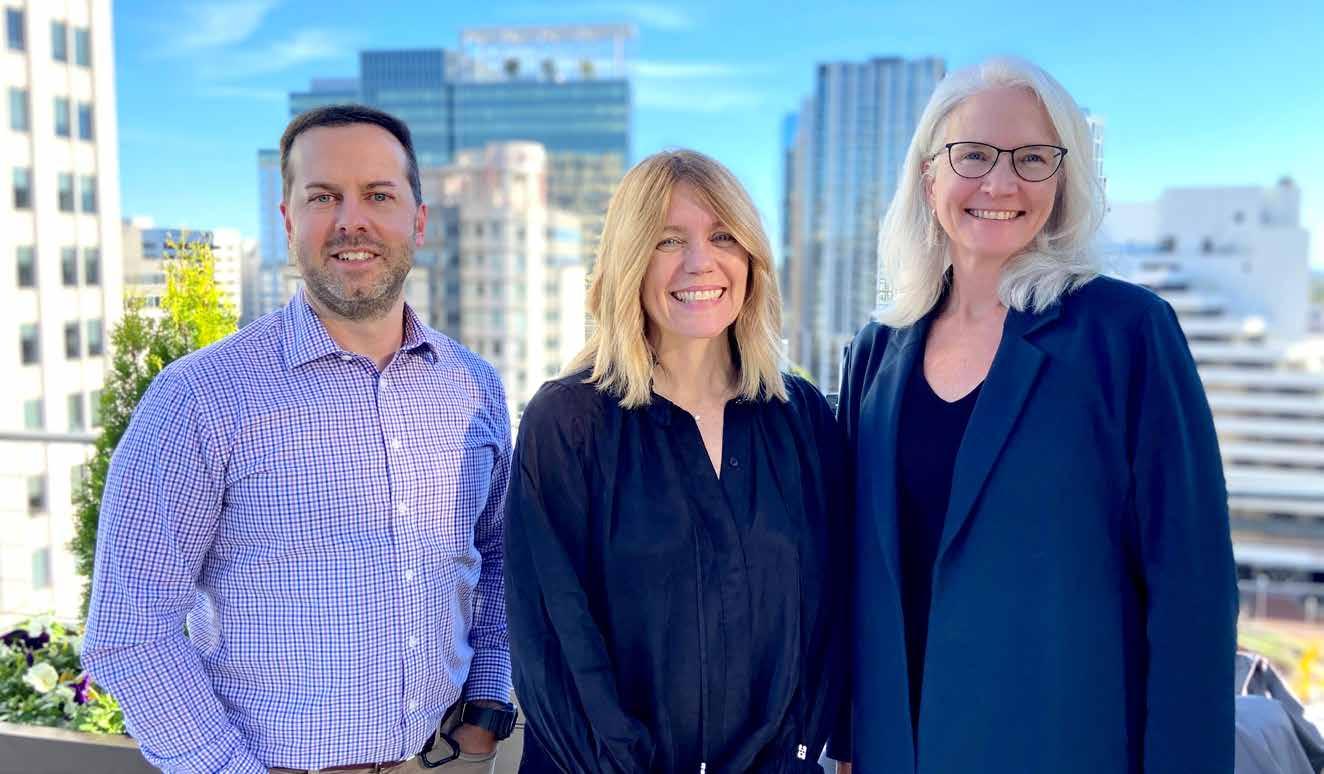
Our portfolio, and the communities we invest in, are built to last
We make markets work for more people, more often.
Over the past 30 years, the Community Investment Note® portfolio has invested in organizations around the globe that support community and environmental needs. Our partners are resilient, creative, and committed. They have endured in the face of widespread social and economic shocks –a financial and housing crisis, economic recession, a global pandemic, and global conflicts – and come out the other side stronger than before. This year is no different. We will continue to invest in high-impact organizations that build asting resilience n communities by creating quality jobs, affordable housing, clean energy and more.
In 2024 alone, our portfolio reached $587.1 million, financing 101 portfolio partners working across 9 sectors and 113 countries. 60% of our capital was invested in the US and 40% was invested in emerging markets internationally.
193 MILLION clients served metric tons CO2e reduced 7.8 MILLION
The multiplier effect of our work
The multiplier effect of our work is equally significant. Between 2015 and 2024, we deployed an average of $146 million annually to our portfolio partners. With the help of our capital as well as that of others, our partners collectively deployed an average of nearly $8 billion per year, a 54x multiple.
The Community Investment Note® enables all kinds of investors to finance jobs, homes, businesses, and more around the world. It also supports something less tangible, but just as important: continued development of the infrastructure needed to channel capital from investors to community-based partners on a global scale. Our impact measurement and management framework is built to reflect that.
We measure and manage our impact across three layers:
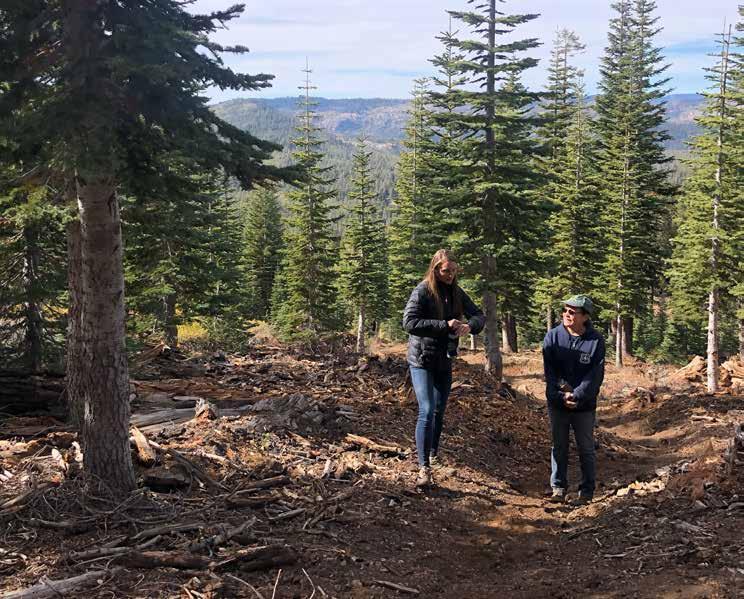
Individual and institutional investors in the capital markets gain access to impact investments through the Community Investment Note®.
Our capital helps new markets develop and supports our portfolio partners in growing and scaling their operations and impact.
Our portfolio partners impact communities and the climate, financing solutions to inequality and climate change around the world.
Investors, Advisors, and Institutions
$8
Since 1995, we’ve proudly helped individuals and institutions invest in solutions that strengthen communities and protect our planet. As we celebrate our 30-year anniversary, we’re taking a moment to reflect on how far we’ve come, and the transformative impact of our work.
When we launched the Community Investment Note® in 1995, the term “impact investing” had yet to be coined. What started with a direct mail campaign to teachers and firefighters, today is an investment product with distribution to more than 130 brokerage platforms and 800 financial advisors. We’re especially proud of our ability to engage the everyday
retail investor, many of whom are exploring impact investing for the very first time. With the help of these investors, we've channeled over $2 billion in capital, across countries.
As the world continues to face widening wealth inequality and the intensifying effects of climate change, we remain steadfast in our commitment to make impact investable so that social and environmental solutions in communities get the capital they need. For a deeper look at our impact over the last three decades, see page 22.
Calvert Impact Capital, then Calvert Social Investment Foundation, sold the first Community Investment Note® (the Note®) to support the Affordable Housing, Microfinance, and Community Development sectors
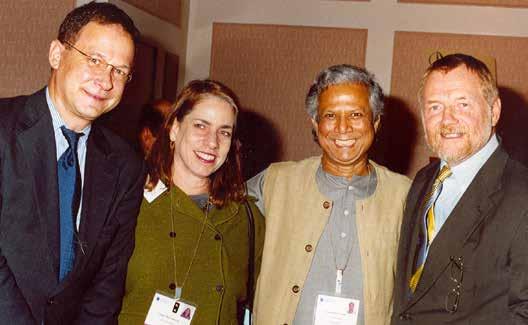
Began offering the Note® through InspereX’s national network of brokerages with a CUSIP, increasing the accessibility to investors and advisors 1995
Launched the Calvert Giving Donor-Advised Fund, now ImpactAssets, and created the Community Investment Partners program to support investors with due diligence and helped nonprofits create more than a dozen impact investment products, inspired by the Note®
$1.4 Million deployed
20K+ 800+ 130+
Financial Advisors offering the Community Investment Note® to clients since '95
2012
Launched the Women Investing in Women Initiative (WIN-WIN), allowing Note® investors to target gender equity and formalizing our first gender lens strategy
130 brokerage platforms have traded the Note®
unique investors since founding
$2 Billion deployed since '95
2017
Calvert Impact Capital becomes financially self-sufficient


Diversified the Note® portfolio to encompass new climate-related sectors and geographies, thinking holistically about how the portfolio can address climate change
2019
Cumulative deployment of the Note® surpassed the $1 billion mark
We celebrate our 30 th anniversary with excitement to continue investing for a more sustainable and equitable world
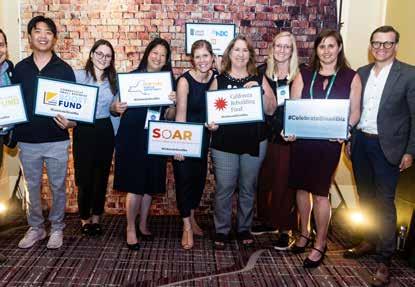
2020 2023
Note® portfolio
relationships with small business
lenders and PACE
2025 2005 2008
First sold the Note® online for $20, expanding retail access to impact investing
The Note® receives the highest advanced ratings in an independent verification, conducted by BlueMark, for impact management best practice
Equity begin to spur new investment
product creation
We invest across both
and
Our financing reaches over 100 countries through our portfolio partners
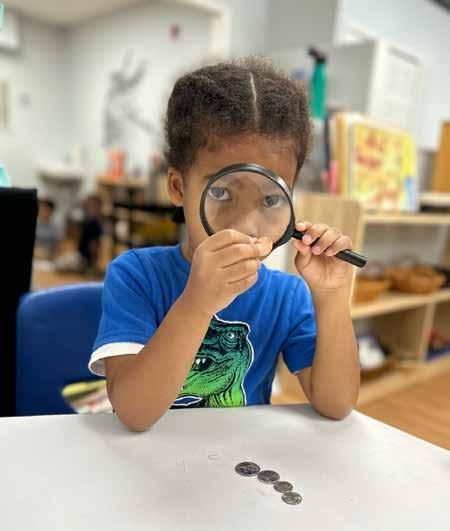
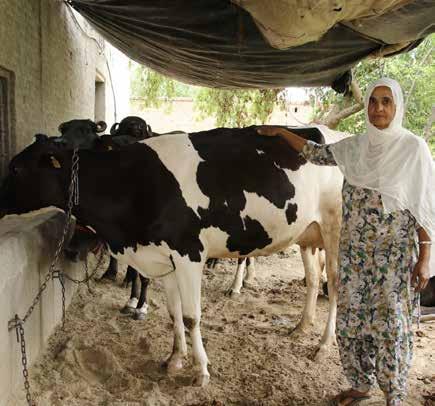
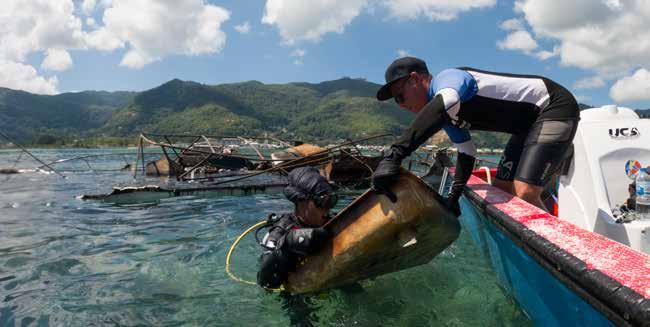
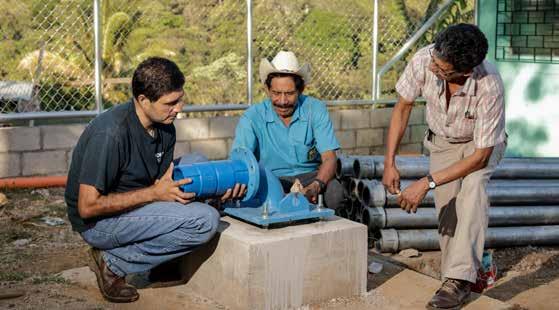
We invest to create and preserve safe, stable, and affordable housing for low- and moderate-income families. Access to housing is essential for supporting economic, social, and physical well-being of families and individuals. We invest in intermediaries to help expand and preserve the supply of affordable housing for families in need. At a time when housing costs are rising, our investments help improve access to stable homes and empower renters and homeowners.
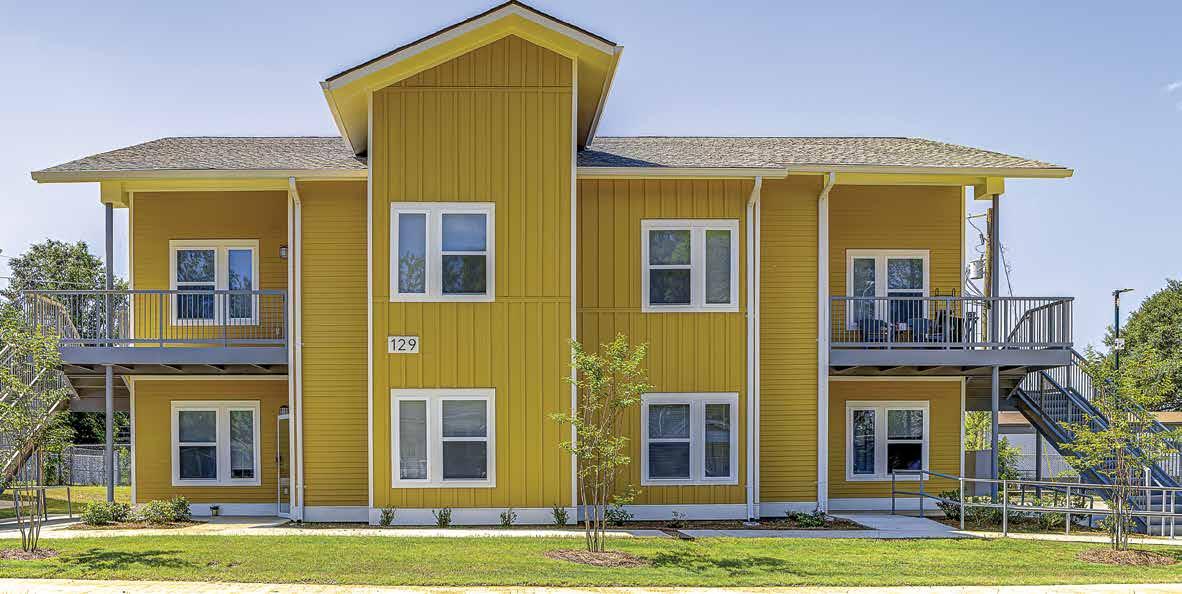
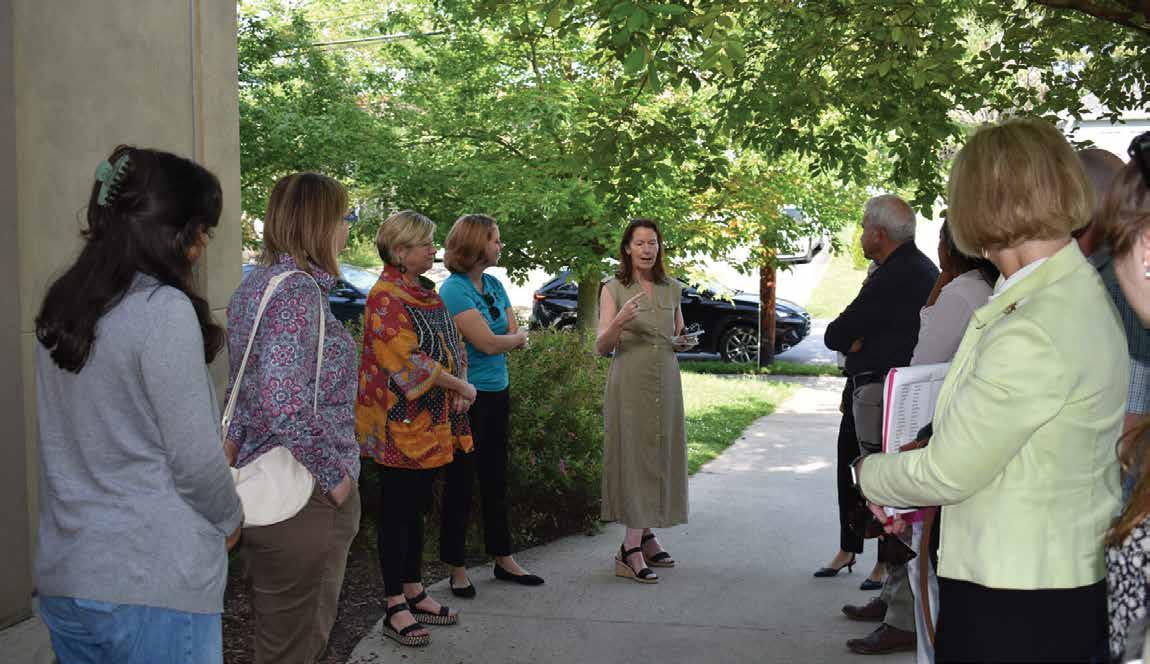
It’s about removing barriers to care and helping a vital community resource reach even more families.”
CENTRAL APPALACHIA & SOUTHEAST REGION, US
PCAP advances equity and helps communities flourish by lending to enterprises that promote a healthy environment and healthy families in Central Appalachia and the Southeast. St. Gerard House has long been a lifeline for individuals with autism and their families in Western North Carolina. PCAP’s support also enabled the creation of the St. Gerard Center for Autism, a 45,230-square-foot facility that will bring all of the organization’s programs under one roof.
affordable units owned or managed
clients receiving housing counseling
people housed/ clients with new access to housing

MID-ATLANTIC REGION, US
AHC Inc. is a nonprofit affordable housing developer that provides quality homes for low- and moderate-income families through the production, preservation, and management of affordable rental housing. In summer 2025, AHC, Habitat for Humanity Metro Maryland, and Montgomery County in Maryland celebrated the grand opening of Allium Place, a 195-home affordable community that represents one of the largest new construction affordable developments in the county’s history. The 6-acre development on former county land brings together deeply affordable rental opportunities and homeownership on a shared site. Over half the rental homes are affordable at 30%–50% of area median income. FAHE
APPALACHIAN REGION, US
FAHE is a network of over 50 community-based nonprofits working to cultivate thriving Appalachian communities by developing and preserving affordable housing, providing mortgage services to increase homeownership accessibility, investing in community facilities, and initiating economic and infrastructure development. FAHE supports individuals like Arnold and Virginia Weaver of Whitesburg, Kentucky, who lost their home in the 2022 Eastern Kentucky floods and were among the first families served by FAHE’s Housing Can’t Wait program. The Weavers used their FEMA award, insurance, and other sources of funding to purchase a new home out of the flood plain and stay in Whitesburg among their friends and family.
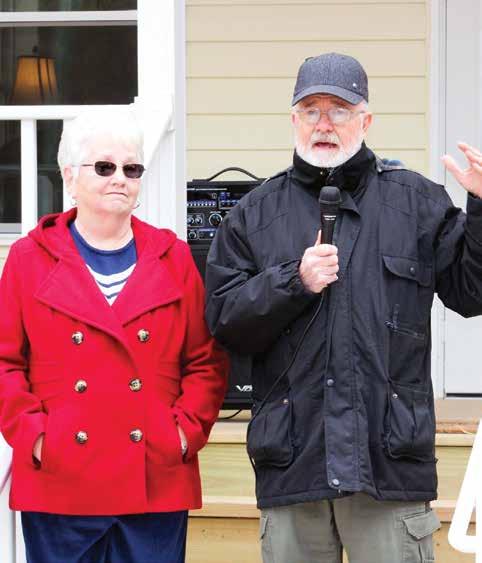
We invest to help communities flourish.
Strong communities have the assets that their residents need to thrive, including housing, schools, community centers, and retail and office space. For 30 years, we have lent to Community Development Financial Institutions (CDFIs) that improve communities' access to essential services and infrastructure, while maintaining their culture and character. Our CDFI partners have longstanding, place-based relationships and are uniquely positioned to make informed, high-impact investments in local organizations.
We invest to expand the potential for students in under-resourced communities.
High-quality, affordable education and childcare help set children up for success, which furthers community health and development. We invest in intermediaries and funds that improve access to education in under-resourced areas, and our capital helps enable our portfolio partners to establish quality and affordable schools in neighborhoods that need them most. Our support for the Education sector is primarily through intermediaries that operate in multiple sectors. For example, Affordable Housing, Community Development, Small Business, and Environmental Sustainability investments often also create educational impacts.

UNITED STATES
Wildflower is an ecosystem of decentralized Montessori micro-schools that are teacher-led and offer childcentered learning environments to support children and families from diverse backgrounds. Our capital supports Wildflower’s ability to provide teacher-leaders with flexible and affordable debt to launch and grow their schools, so that they can focus on providing quality education and administration. The organization supports schools like The Dahlia School of San Francisco Elementary which opened in 2022. Dahlia is the only elementary school in their neighborhood, where 70% of children live in households that earn low incomes.
1,595 5,102
students enrolled schools financed

UNITED STATES
VOANS provides affordable housing and healthcare services in 38 states and Puerto Rico. One property operated by VOANS is The Preserve, a senior living community in Fort Myers, Florida, where nearly 20 residents have a form of dementia. When Ralph Marshall was diagnosed with Alzheimer’s, Ralph’s wife Maggie began searching for a memory care facility in Fort Meyers to be close to their daughter. The Preserve had an available memory care room and Ralph was able to move into Memory Support. With VOANS’ care, Ralph received appropriate medication and his condition improved.
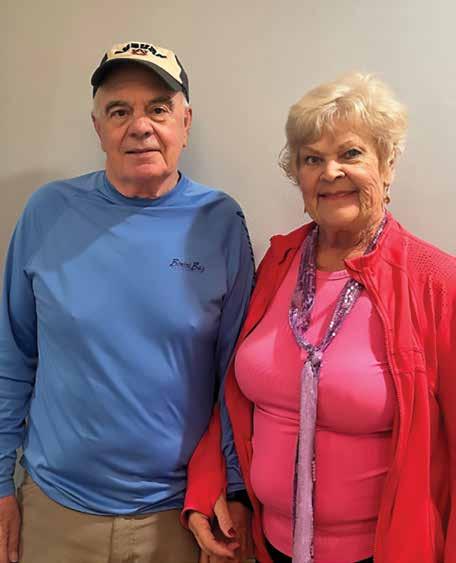
The Center supports people exiting CCC's Hooper Detoxification Center, including individuals who need extended residential treatment before transitioning to recovery-supportive housing, and those preparing for substance-use-disorder intensive outpatient care.
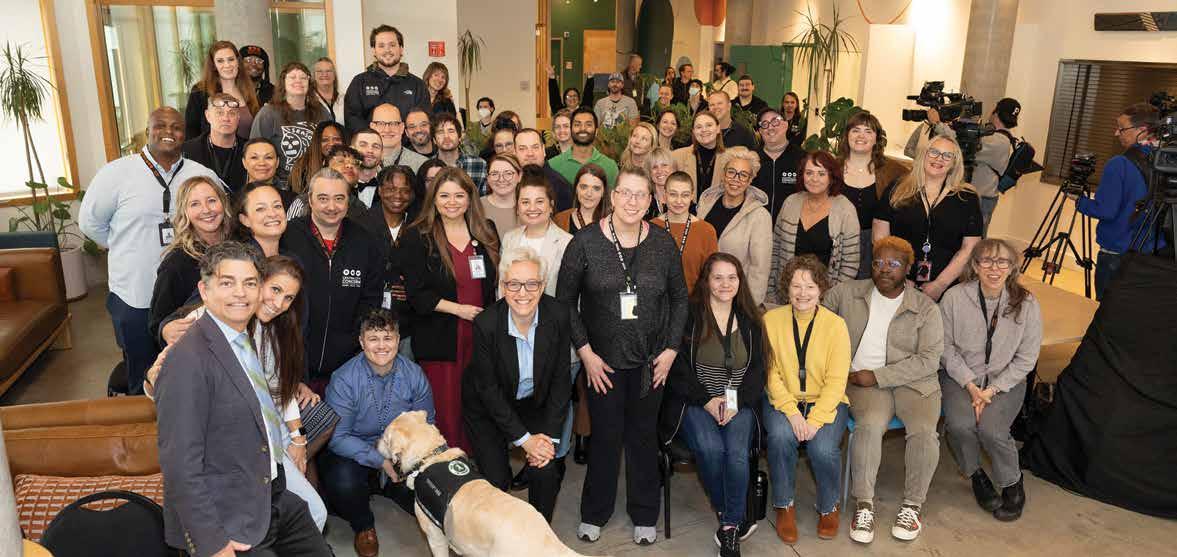
We invest to increase access to healthcare and to support clean water and sanitation.
Access to quality and affordable healthcare is essential to the livelihoods and well-being of all individuals and families. We invest in intermediaries that operate and finance healthcare facilities, address market gaps in health services for low- and moderate-income communities, and improve water quality and sanitation for people around the world.
Similar to the Education sector, our health impact is achieved primarily through multisector intermediaries that also work in Affordable Housing, Community Development, Small Business, and Environmental Sustainability.
13,552
393,457
21 patients served people with improved access to drinking water healthcare facilities financed
We invest to improve access to finance so more individuals can meet their household and business needs.
Microfinance is a powerful tool that helps support individuals and small businesses by providing financial services – direct capital as well as technical assistance – to those who lack access to traditional credit or banking. Through targeted investment in microfinance loan funds and networks, we address financing gaps that support the financial stability of low-income individuals and small entrepreneurs. When microenterprises have access to capital, they create local employment opportunities, strengthen community economies, and improve families' wealth.
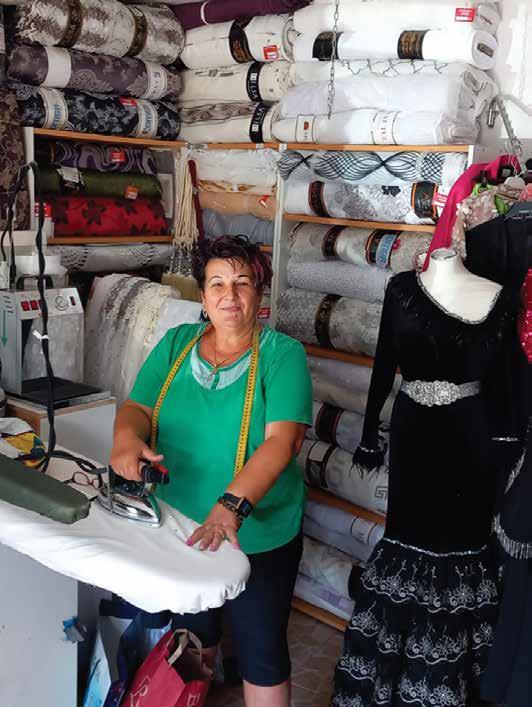
Communities is an international non-profit organization that provides a suite of financial services to support sustainable change that improves the lives and livelihoods of vulnerable communities around the world. The organization runs multiple programs that encompass economic development, global health, and food security and humanitarian assistance to support clients such as Ana Pătruțescu, an entrepreneur in Romania who courageously left her factory job to start her own tailoring business. With support from Global Communities' VITAS Romania program, Ana was able to purchase her own space, additional sewing machines, and equipment to grow her business.
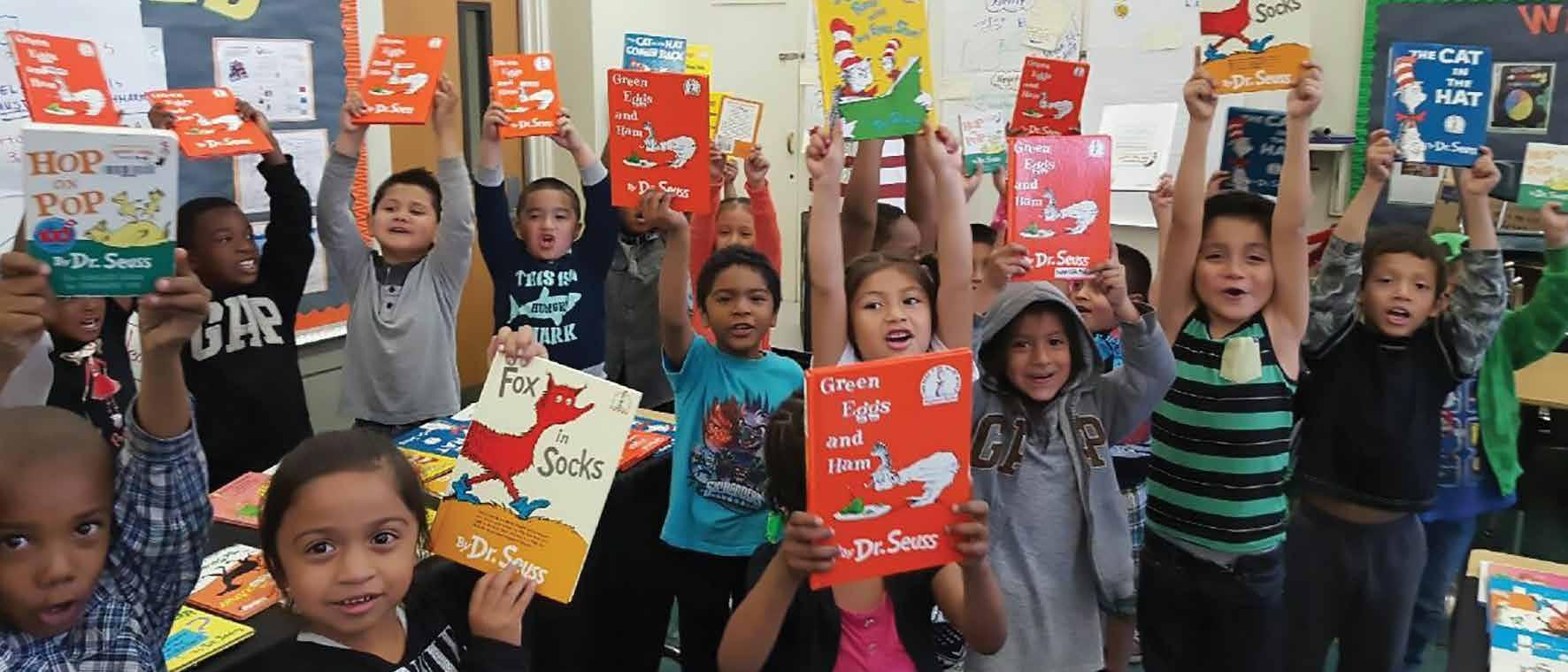
Greenline Ventures' SBCF leverages New Markets Tax Credits to provide below-market financing to underserved businesses in distressed communities. Greenline's work aims to increase job creation and retention, improve worker training and employee benefits, boost minority or women owned businesses, reduce environmental impacts, and assist low-income workers. Greenline’s borrower, Discover Books, sells used books to divert books from landfills and help improve literacy. Greenline’s support enabled Discover Books to fund facility improvements in their Ohio and Indiana distribution centers, as well as supported 260 existing jobs while creating 112 new positions. Additionally, Greenline supported Discover's partnership with Cleveland Kids' Book Bank, amplifying community literacy efforts.
We invest in small business as the engine of inclusive economic growth.
responsAbility Micro and SME Finance Debt Fund (respA MSME Fund)
COLOMBIA
The respA MSME Fund, managed by responsAbility Investments AG, focuses on private debt investments in emerging markets to promote financial inclusion. One of its borrowers, Banco Mundo Mujer (BMM), was founded in 1985 by Leonor Melo de Velasco in response to her community’s needs following an earthquake in Popayán, Colombia. Since then, BMM has evolved into a leading microfinance institution dedicated to reducing poverty, promoting gender equality, and fostering economic growth –with a primary focus on expanding access to financial services for women and rural communities.
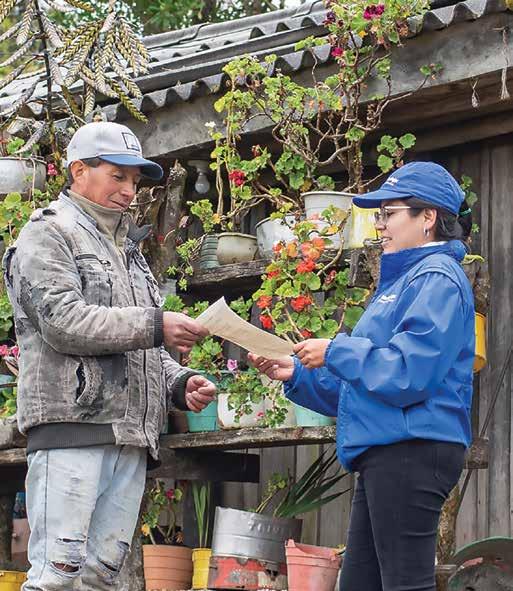
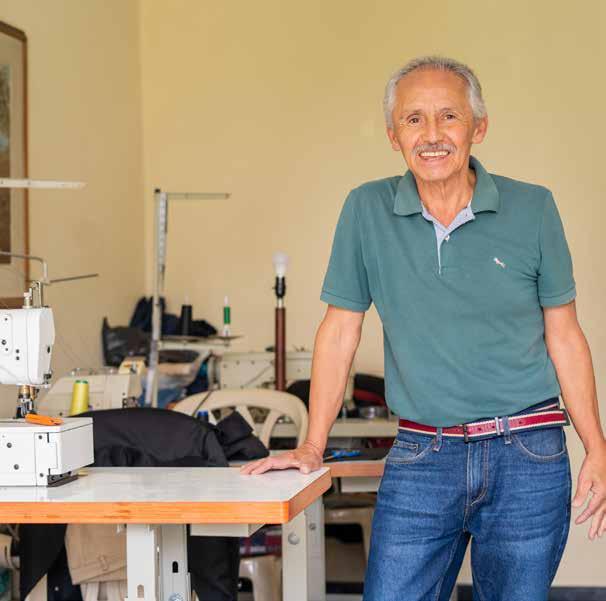
EAST ASIA & PACIFIC, SOUTH AMERICA
Accial Capital is an impact-focused, tech-enabled asset manager working to reduce the emerging market credit gap by providing small business lenders with capital, technical assistance, and data expertise by developing financial products that provide low- and middle-income borrowers with greater opportunity to achieve financial resilience. Accial Capital’s investment in Avista supports financial inclusion for pensioners in Colombia, who are often overlooked by traditional lenders.
Small businesses drive inclusive economic growth, creating quality employment opportunities and fostering community development across both domestic and international markets. Yet, small- and mediumsized enterprises (SMEs) face significant barriers to accessing appropriate financial services, often finding themselves too large for microfinance yet too small for traditional bank loans. These financing challenges have been compounded by bank consolidation and the decline of community-focused lending institutions that historically served this market segment. We address these challenges by partnering with specialized intermediaries, including CDFIs in the US and SME lenders globally, who develop tailored financial products and services to meet the unique needs of small businesses and support their growth while creating meaningful employment opportunities in their communities.
8.8M 1.4M 4.8B SMEs financed jobs created or retained in revenue generated by small businesses Accial Capital
We provide financing to increase access to clean energy, improve air quality, and address health disparities.
Access to reliable, efficient, and affordable clean energy is fundamental to the well-being of communities worldwide, improving health outcomes for families while supporting sustainable economic development. Globally, our renewable energy strategy focuses on expanding access to renewable energy in offgrid areas through strategic financing of solar home systems, commercial and industrial solar installations, and hydropower projects. These investments enable communities and businesses to access reliable power sources that would otherwise be unavailable or unaffordable. Domestically, we focus on intermediaries facilitating the transition to low carbon and energy efficient buildings, as well as organizations financing utility-scale solar, solar energy storage solutions, and community solar, such as solar on residential multi-family affordable housing properties, educational facilities, and nonprofit and community facilities.
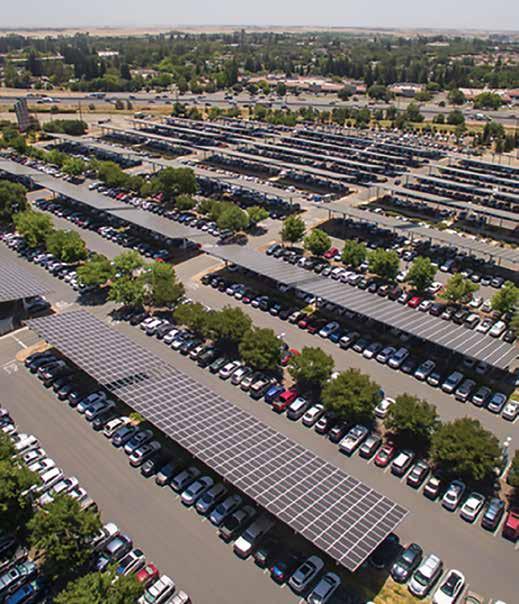

CENTRAL AMERICA & CARIBBEAN, SOUTH AMERICA
The eco.business Fund for Latin America and the Caribbean, managed by Finance in Motion, promotes biodiversity conservation and the sustainable use of natural resources through blended finance approaches. Their investment in Banco Hipotecario enabled support for Casal, Don Miguel Menéndez's family-run coffee operation in El Salvador. Casal's shade-grown coffee forests sequester CO preserve biodiversity, and protect groundwater while employing around 100 year-round staff, 40% of which are women. Casal's work demonstrates how sustainable agricultural practices create environmental and economic value simultaneously.
We invest in projects that increase food security and promote economic development through sustainable and climate-smart agricultural practices.
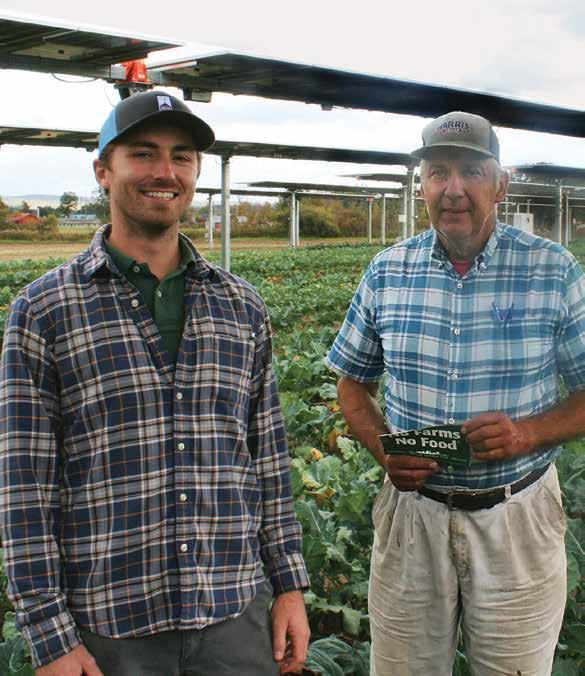
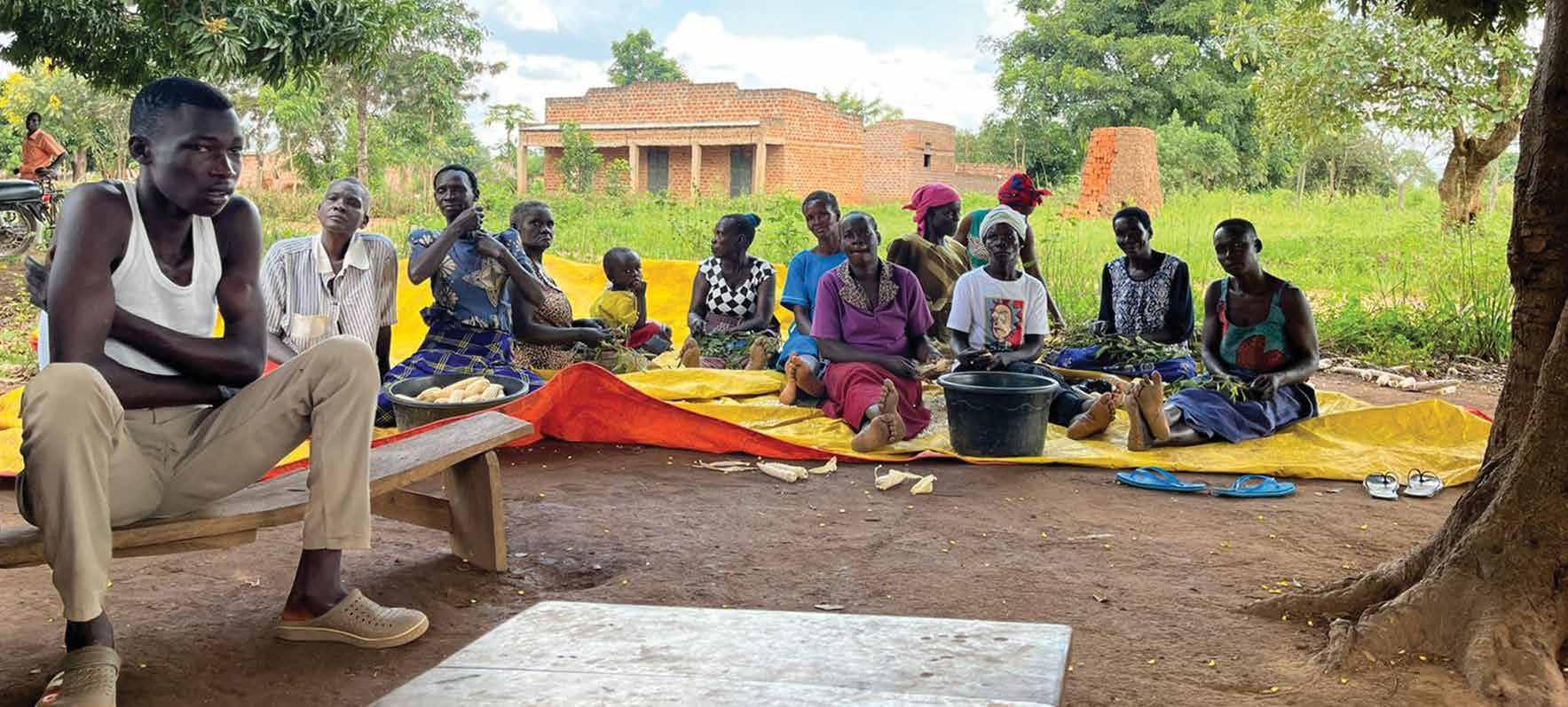
As climate change intensifies, it poses severe threats to global food security through crop depletion, land degradation, and water scarcity. Communities whose livelihoods depend on agriculture face compounding difficulties including limited access to appropriate financing and insufficient knowledge of sustainable, climate-smart farming practices that could help them adapt to changing environmental conditions. By lending to intermediaries whose focus is financing sustainable and climatesmart agricultural practices, we help support the improvement of livelihoods for agricultural producers, strengthen global food supply chains, and contribute to greater global food security.
427,707
59.2M smallholder farmers supported acres managed sustainably
We invest in efforts to conserve the planet’s natural resources, address climate change, and protect communities against its adverse effects. Climate change creates disproportionate impacts on lower-income communities, particularly in developing nations. Addressing these challenges requires a comprehensive approach that includes sustainable resource management, reduced fossil fuel dependency, and widespread adoption of climate adaptation practices to decrease greenhouse gas emissions while protecting biodiversity and human well-being. Our investments provide flexible capital to intermediaries, funds, and other financing structures that are focused on conserving natural resources, preserving biodiversity, and reducing carbon emissions on a global scale.
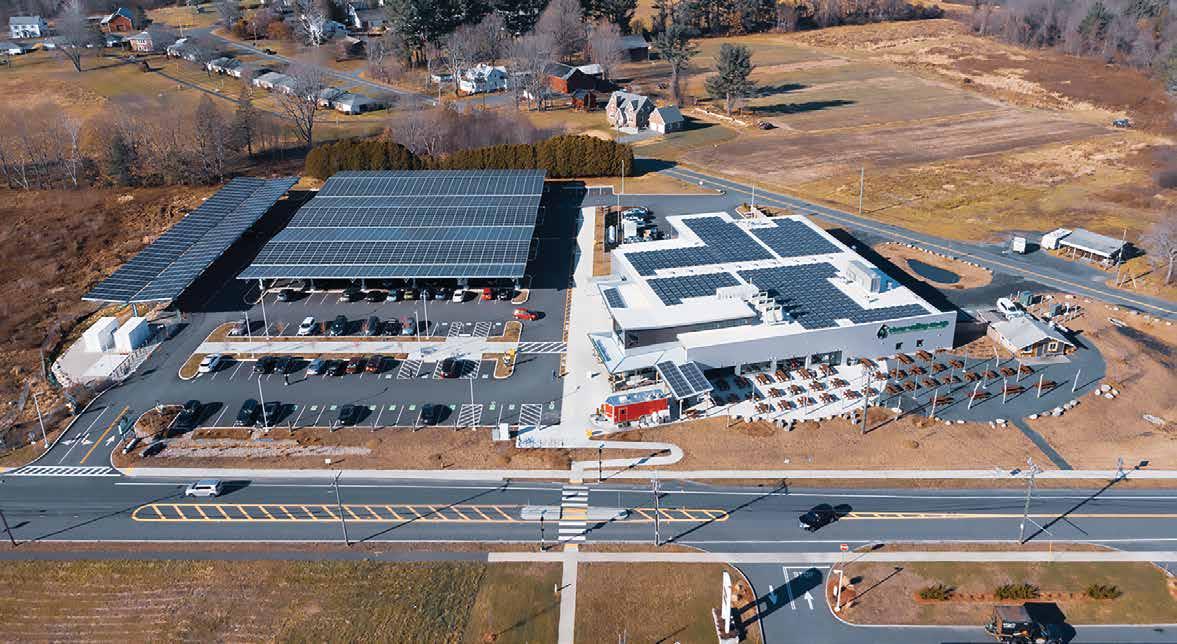
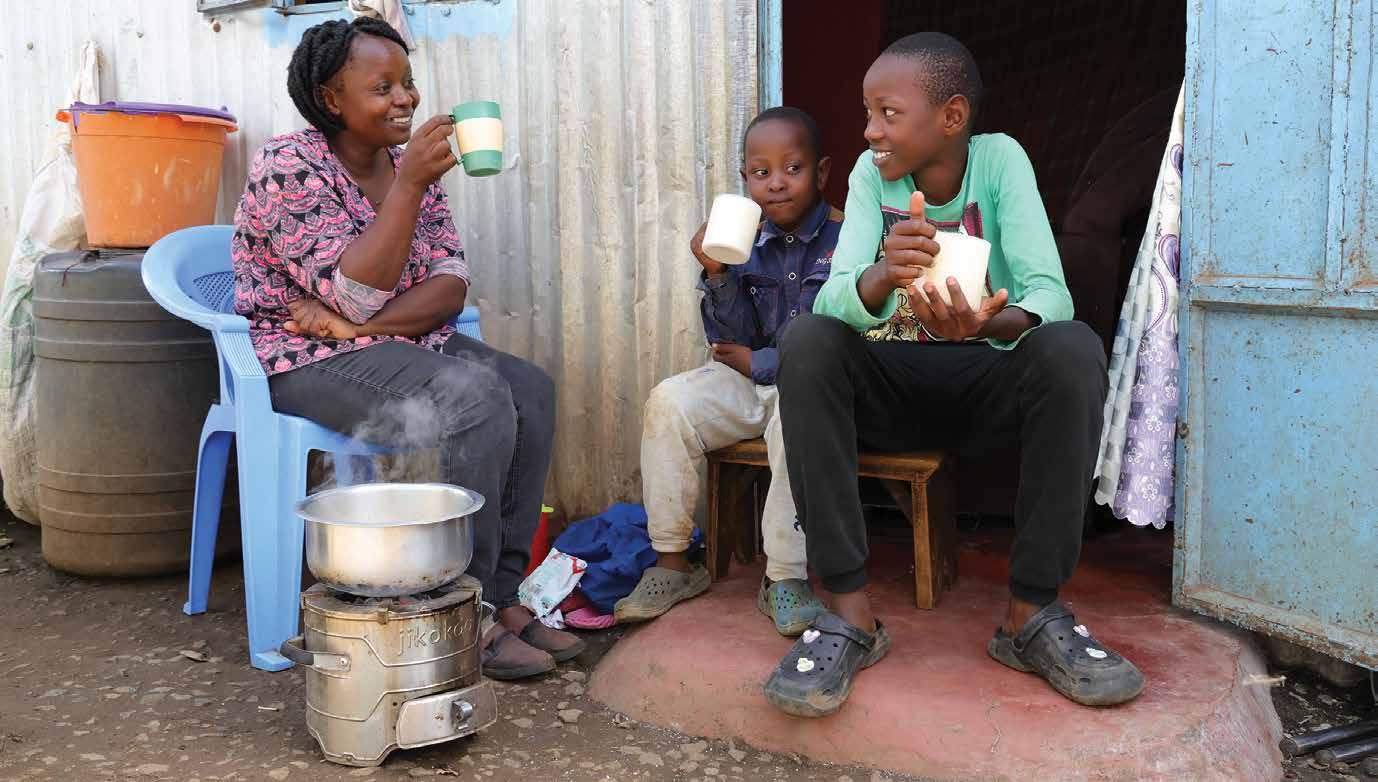
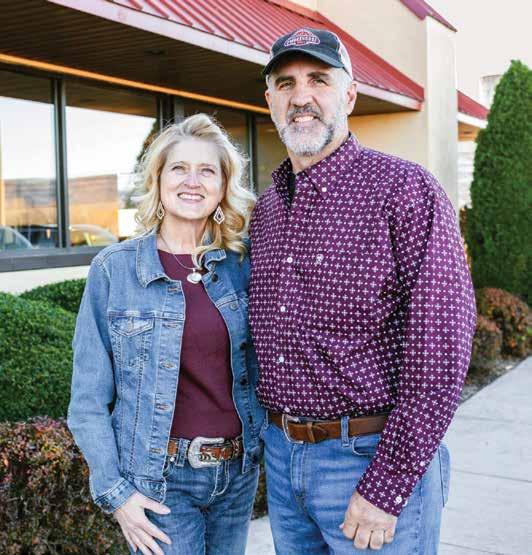
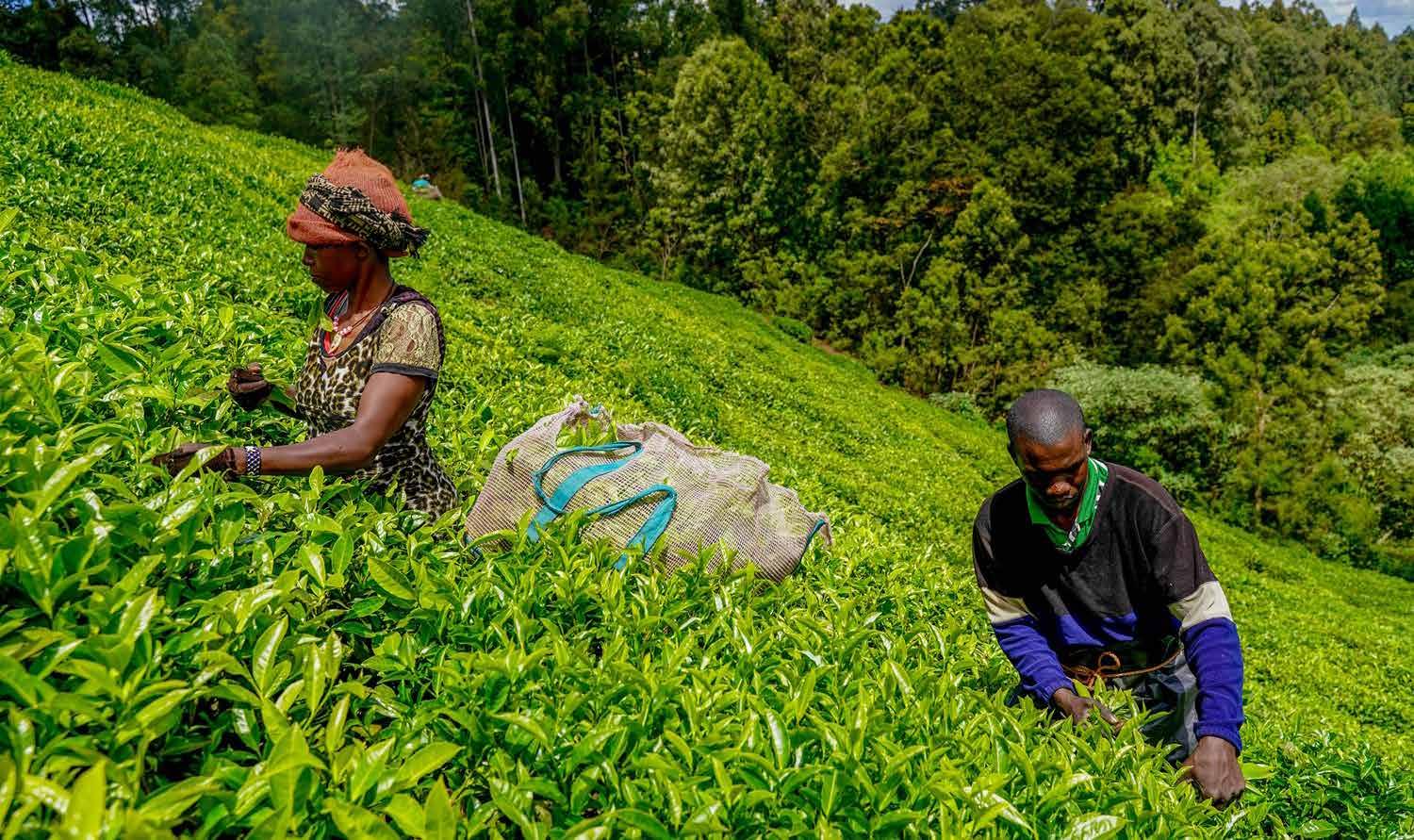
When women have equal access to capital, education, and economic opportunities, they drive innovation, reduce poverty, and strengthen social stability. Research demonstrates that women reinvest earnings back into their families and communities, making them powerful catalysts for local economic development. We also know that organizations with greater gender diversity at governance and leadership levels consistently outperform their less diverse counterparts, delivering improved financial returns while creating resilient business models. By applying a gender lens to our investments, we recognize that gender equity is not merely a social imperative—it's a strategic business decision that unlocks untapped potential, creates sustainable value, and builds more inclusive financial systems that benefit society as a whole. Read more about our lessons learned and resources
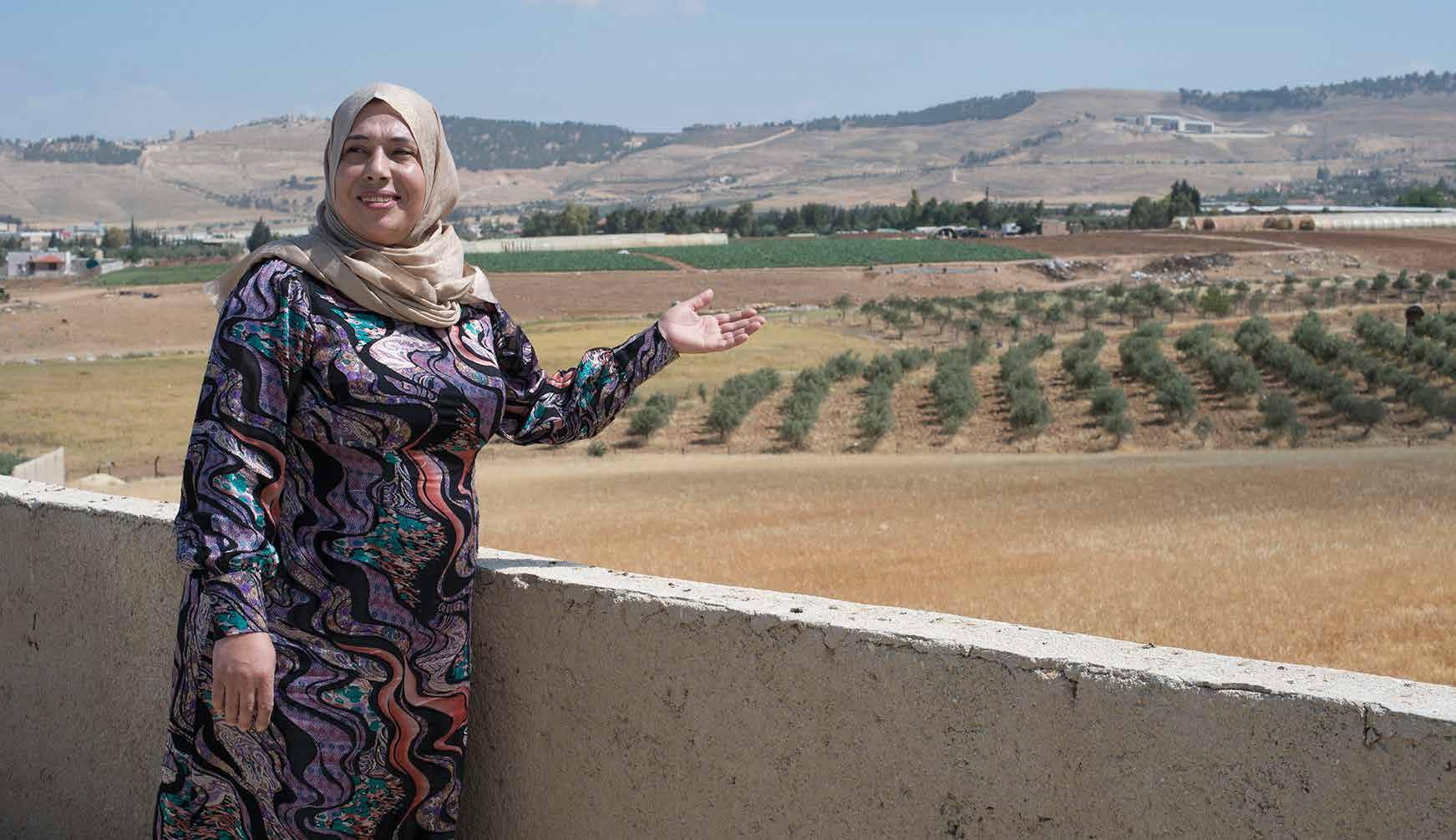
100M
192,434 women-owned businesses
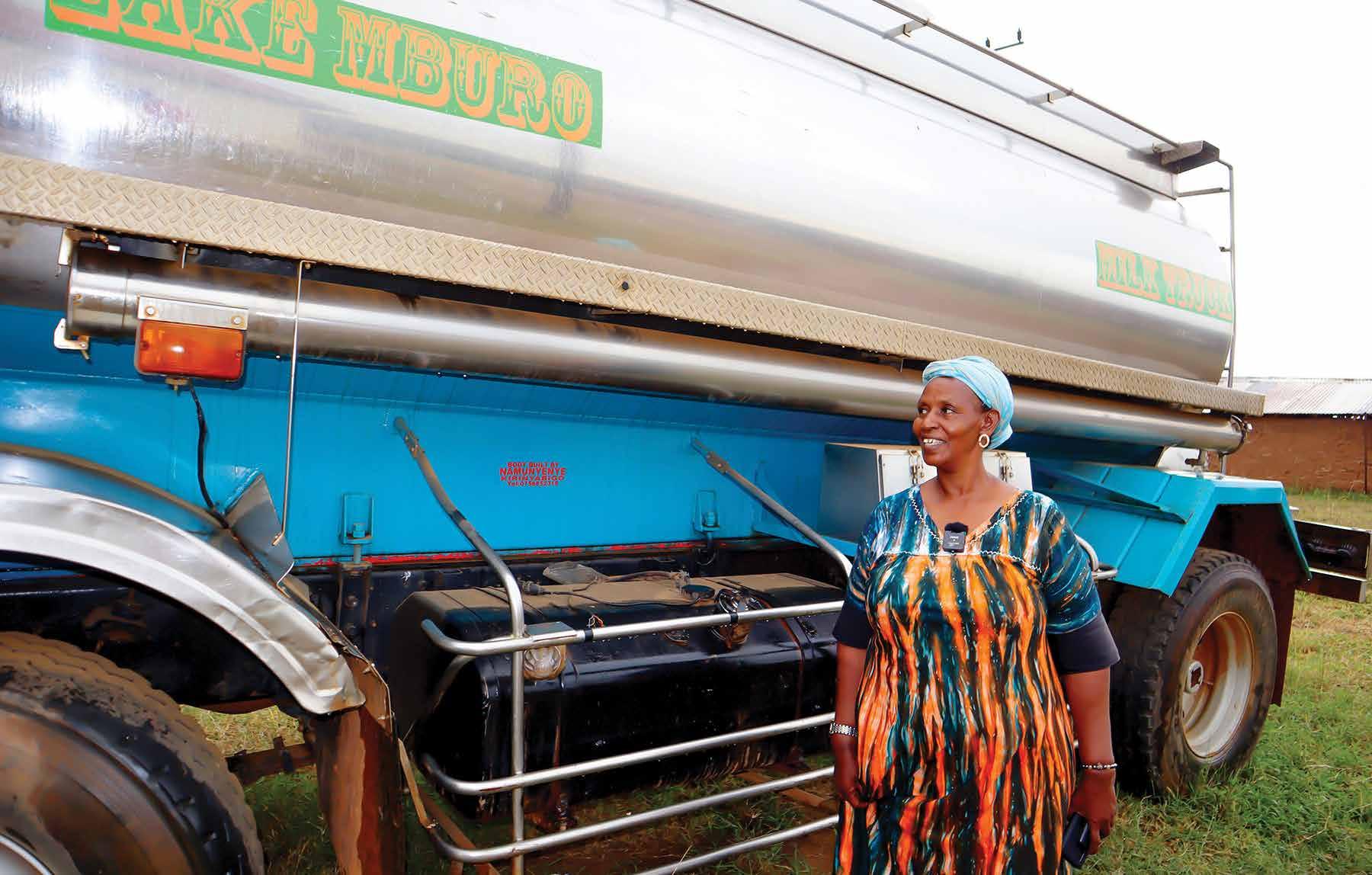

Advancing Prosperity by Ensuring Opportunity for All
An inclusive economy that provides equitable access to capital and wealth-building opportunities creates stronger, more resilient markets, while addressing the structural inequities that have historically limited economic potential for millions of people.
We look to invest in ways that advance economic justice and address persistent wealth gaps. By investing in partners who intentionally incorporate community voices, we ensure that economic development remains community-centered and accountable to local stakeholders.
CALIFORNIA, US
69% of end clients in the US are people of color 76% of US businesses financed are owned by people of color
SHE is a nationally recognized community development organization whose mission is to work together with low-income families to build and sustain healthy homes and communities in the San Joaquin Valley of California. SHE’s efforts today encompass a range of endeavors to build better homes and communities for farmworkers and hard-working families. SHE recently celebrated the grand opening of Cherry Crossing, a new affordable rental community that has 72 energy-efficient homes, including 18 that are reserved for farmworker families.
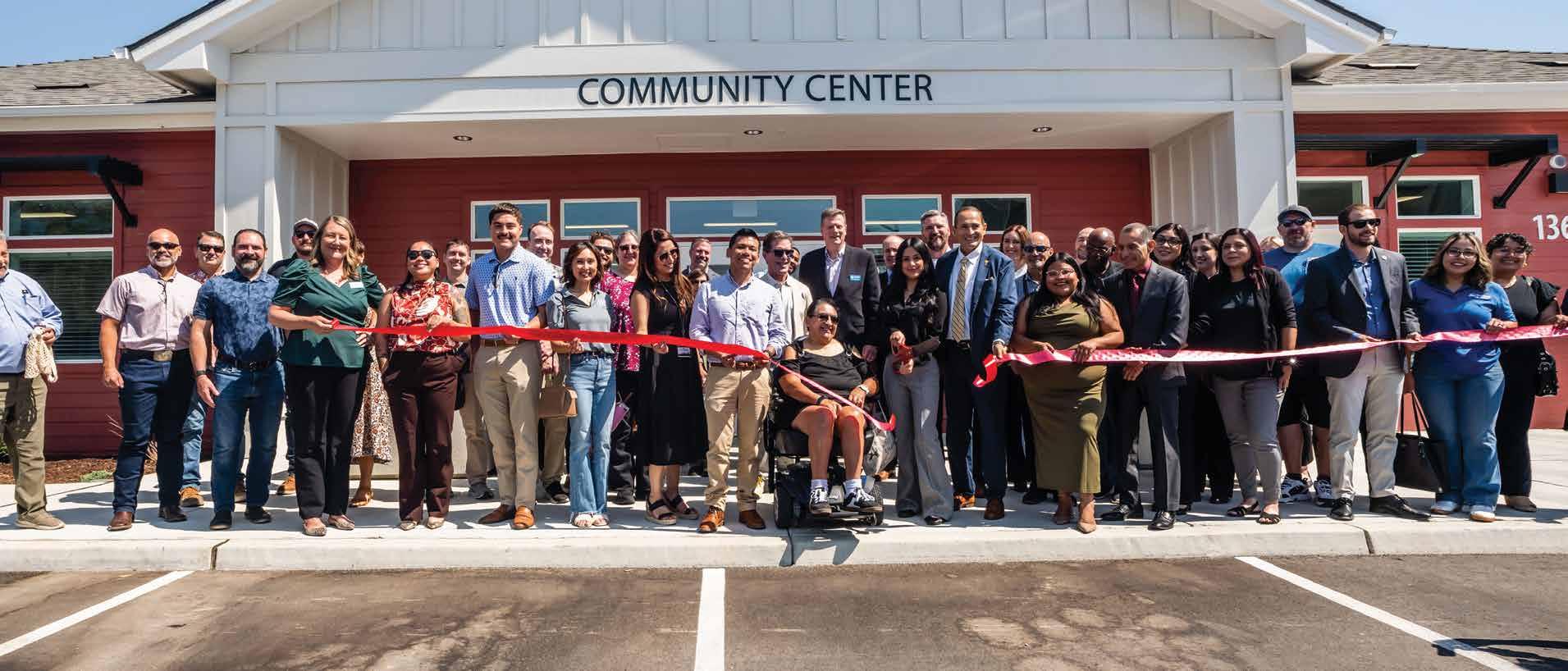
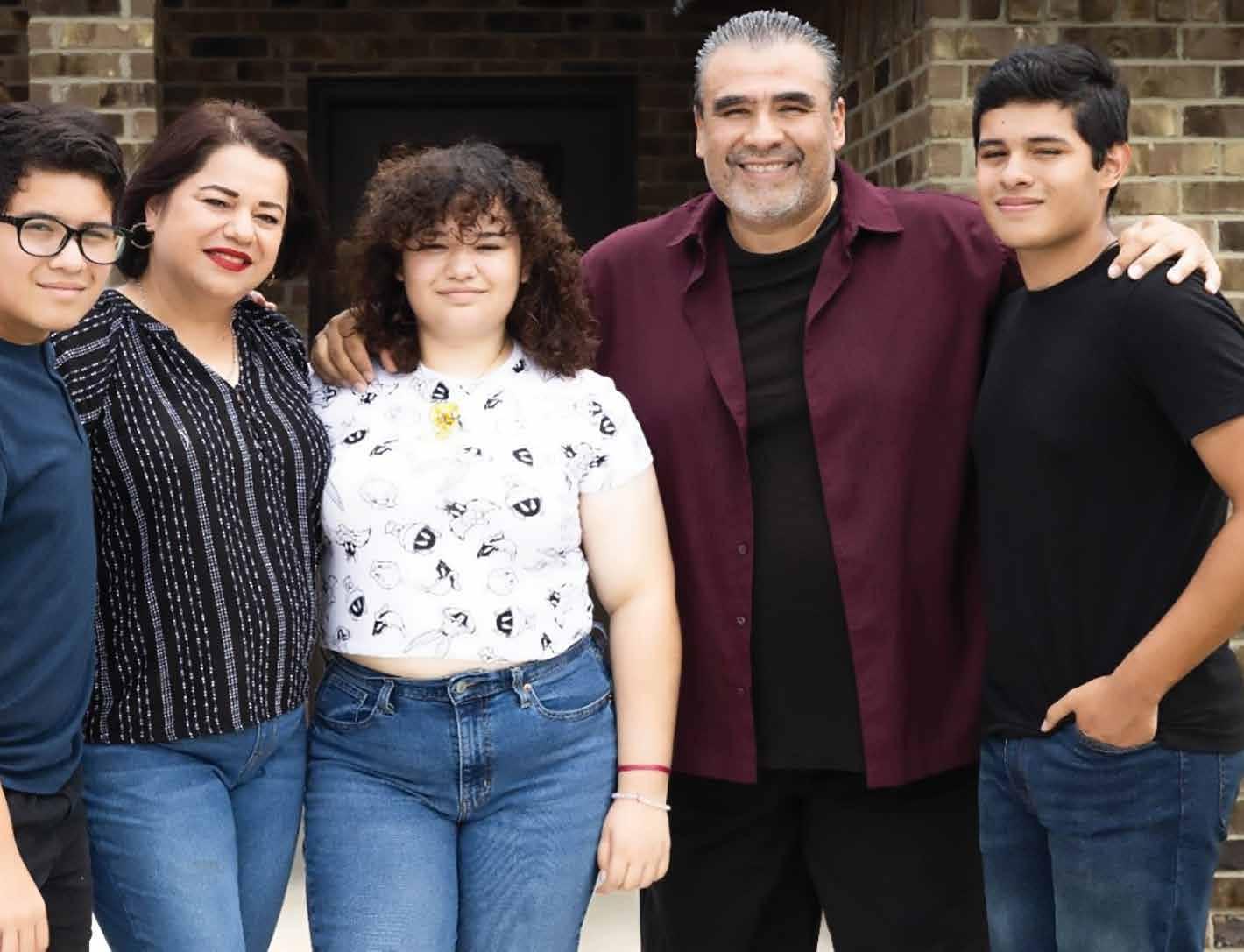
No matter the challenge, [AHSTI was] always there for us—whether by phone, email, or in person, even on short notice. They welcomed us with open arms.”
–Emily Chavez, AHSTI client
TEXAS, US
AHSTI provides home ownership opportunities and financial education to low-income residents of South Texas. Additionally, AHSTI provides multi-cultural, in-house home buyer education to all clients. Since its creation, the organization has provided affordable homes to over 4,600 families, including the Chavez family, who came to AHSTI for guidance in their homeownership journey. From day one, their counselor provided critical education to the family, ultimately allowing them to achieve their dream of homeownership.
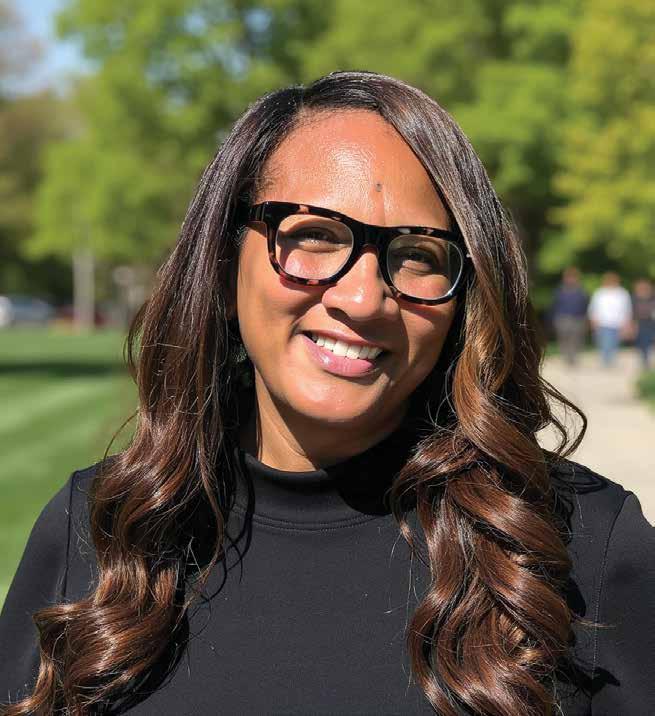
Since our first loan in 1996, we’ve consistently deepened and grown our lending within existing sectors and expanded to new sectors where we see our capital can make a difference. Today, we operate in nine sectors: Affordable Housing, Microfinance, Community Development, Small Business, Renewable Energy, Health, Education, Environmental Sustainability, and Sustainable Agriculture. As we look ahead, we'll continue to do what we do best – build strong, lasting relationships with our partners. We'll keep listening closely to what they need next so we can support their ongoing growth. And we'll stay curious, exploring new sectors and welcoming new partners, so we can ensure our capital reaches the places where it can make the greatest impact.
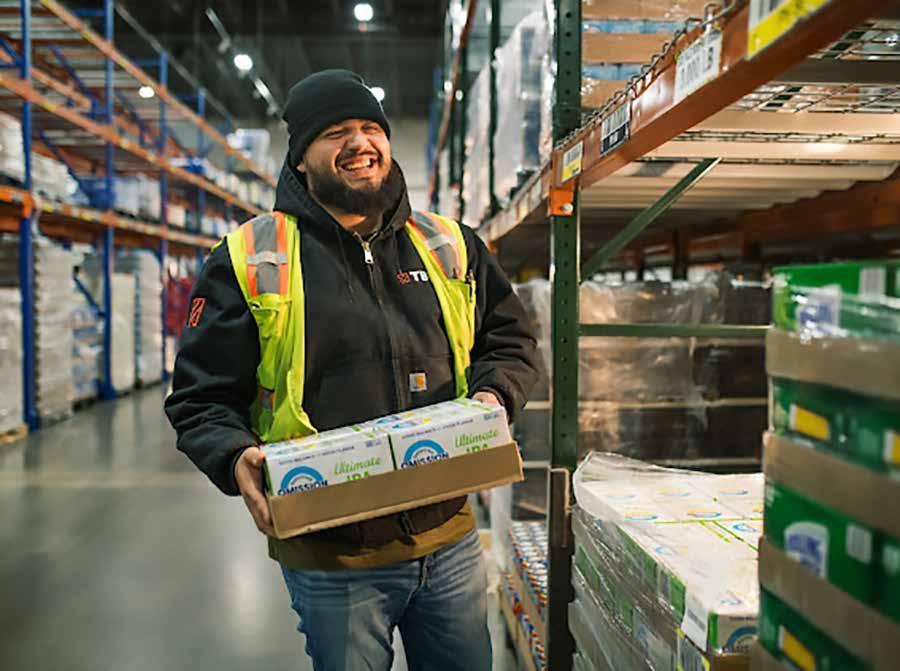
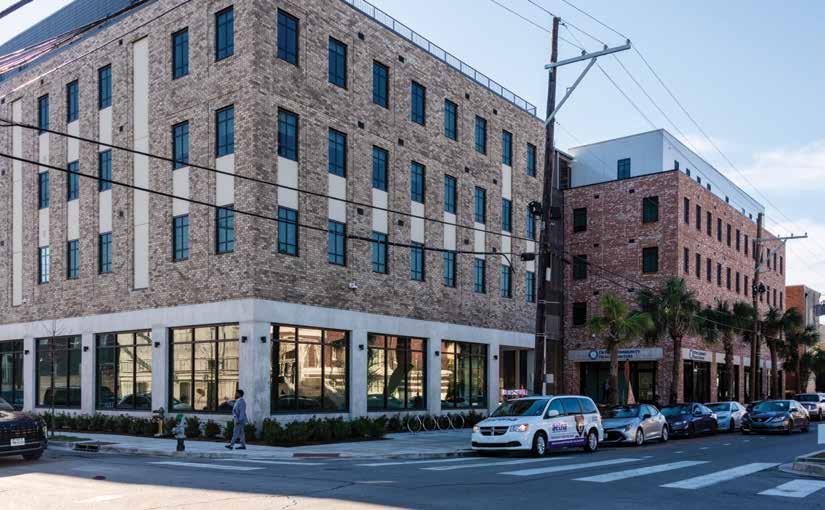
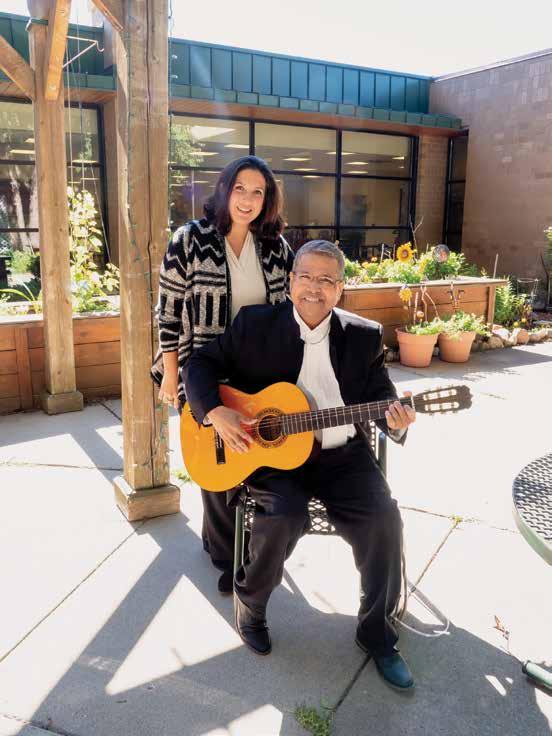

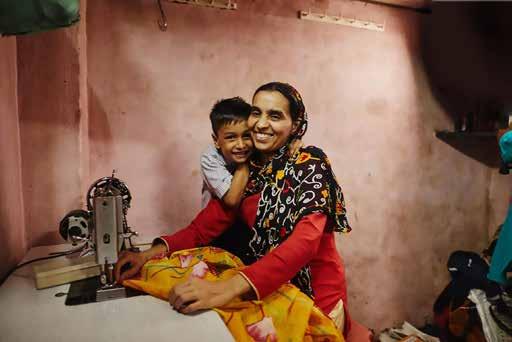
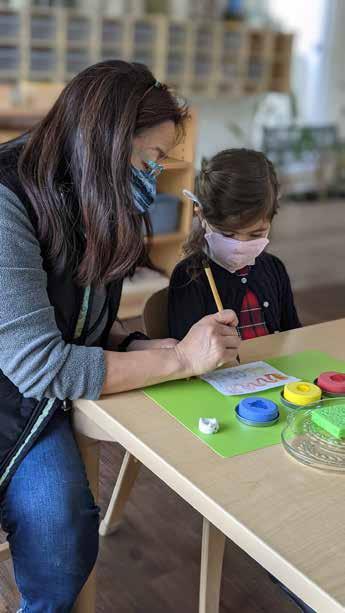
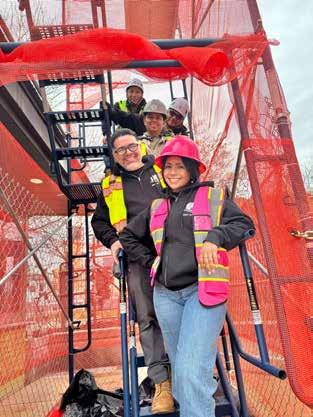


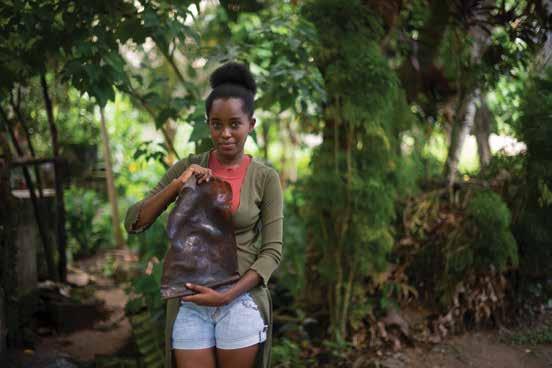
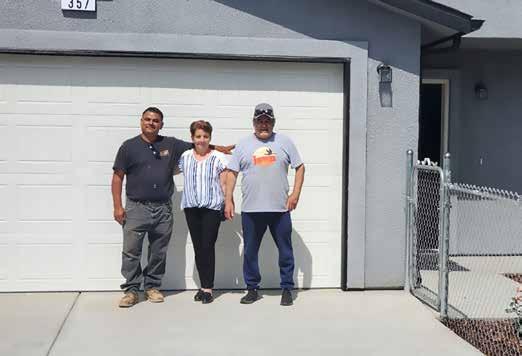
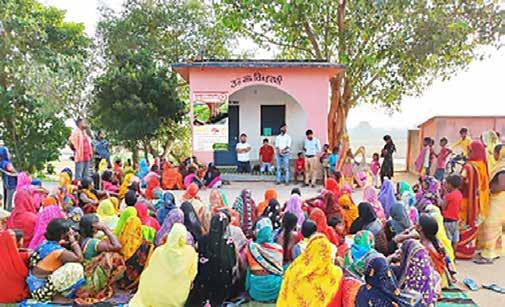
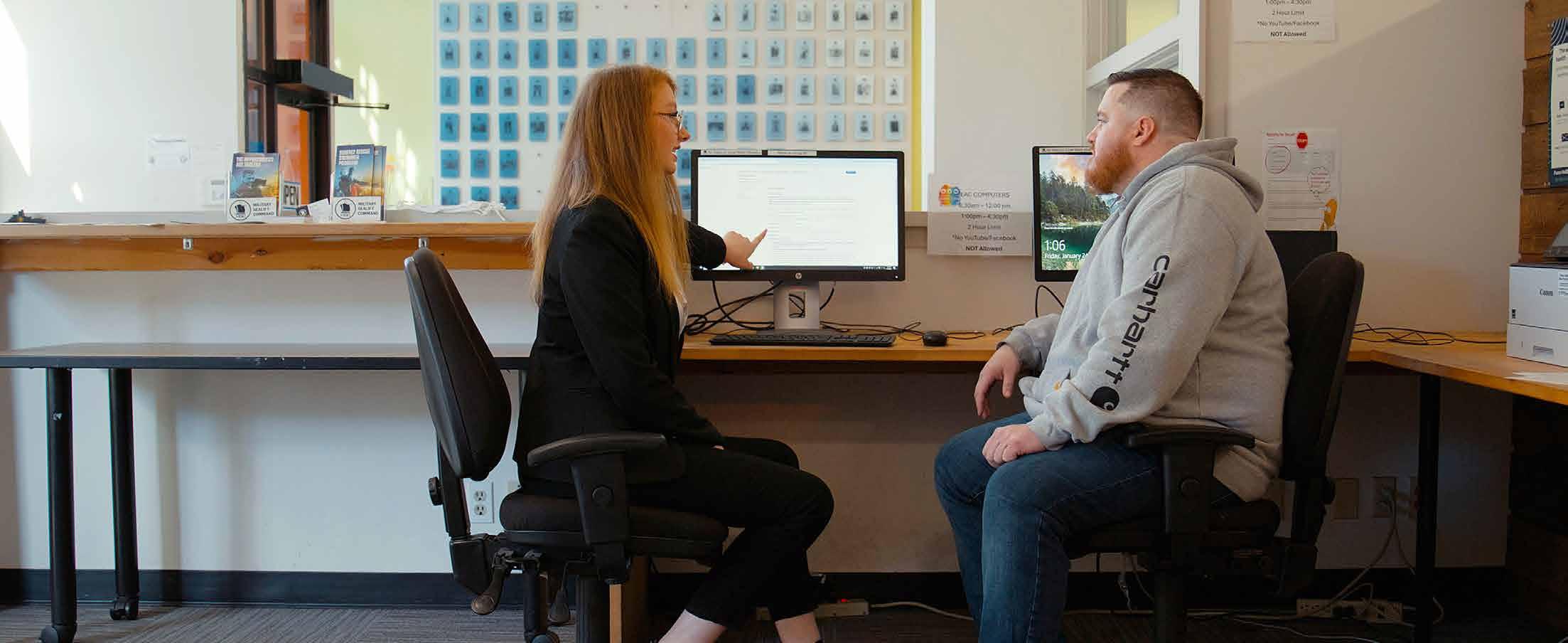
Having access to the funds from Calvert Impact Capital has been critical to CCC’s success in bringing these much-needed resources to the Portland metro region.”
–Peter Beyer, CFO
Peter Beyer, CFO of CCC, shared what they value from Calvert Impact Capital's support, “In the last 10 years, we utilized Calvert Impact Capital funding to support the development of four of our affordable housing communities – Hazel Heights, Madrona, Cedar Commons, and the soon to be developed Emerald [property]... These developments total over 450 units of affordable housing, along with a health clinic, and a planned preschool. Having access to the funds from Calvert Impact Capital has been critical to CCC’s success in bringing these much-needed resources to the Portland metro region.” 1996 2025
Central City Concern is our longest-standing relationship reflecting nearly three decades of shared commitment to addressing homelessness and poverty. Founded in 1979, CCC integrates affordable housing with essential services including healthcare, addiction recovery, and employment support. CCC's innovative approach recognizes that stable housing, healthcare, and employment are interconnected solutions to breaking cycles of homelessness and addiction. CCC’s services support individuals like Bryant who grew up in Portales, New Mexico, and was a part of the foster care system with limited access to services for addiction recovery. Bryant was admitted to the Hooper Detoxification Center, where the staff helped him seek treatment which included attending a recovery program, finding housing, and finding employment. He is now employed and housed and has the goal of becoming a Certified Recovery Mentor.
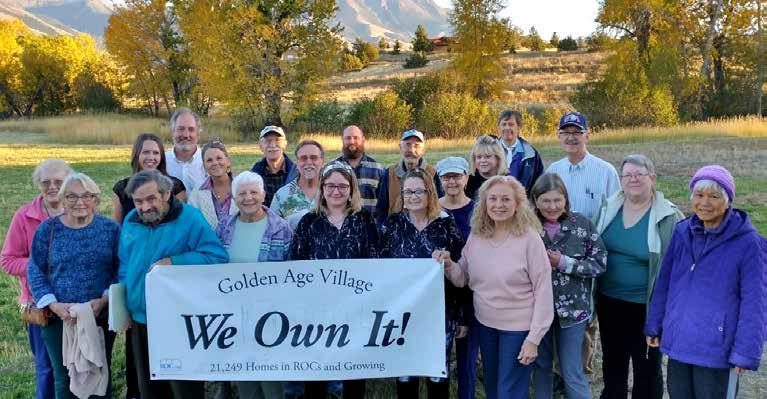
..we don’t just finance the purchase of manufactured home communities, we also equip residents to succeed as cooperative owners.”
–Kent M. Wells, Investor Relations Associate at ROC USA
ROC USA helps resident corporations purchase their own manufactured home communities from private owners, creating permanently affordable housing while building assets for families. Through their network of trained nonprofits they've facilitated hundreds of resident-owned communities. Our long-standing financial partnership supports their mission to create mutually supportive communities where residents control their own housing destiny.
Kent M. Wells, Investor Relations Associate shared what makes ROC USA's work unique, “...we don’t just finance the purchase of manufactured home communities, we also equip residents to succeed as cooperative owners. Through our ROCKET online learning platform, residents gain practical training on how to run their co-op after purchase, from governance and budgeting to long-term community planning. This combination of capital and capacity-building ensures that resident-owned communities not only remain affordable, but also thrive under strong, democratic leadership.”
From our initial deployments totaling $1.4M in 1996, to the more than $252M deployed in 2024, our investments have helped create meaningful change across a growing number of sectors. Below, you'll find cumulative deployments for each sector over the past 30 years. The sectors appear in the order in which they were integrated into our impact portfolio. For more information on our impact metrics methodology, please see page 37.
Greenline Ventures is a financial services company that specializes in providing capital to underserved businesses. One of the ways in which Greenline gets capital to the people and communities who need it most is through their Small Business Capital Funds. Calvert Impact Capital has invested in these funds since the first one launched in 2016.
Kelly Morse, Vice President of Operations and Compliance, shared what makes Greenline's work unique, “... we are one of the first (and few) organizations within the New Markets Tax Credit (NMTC) industry to manage a revolving loan fund. While the industry is not known for its small business financing, we’ve seen firsthand how a loan fund can stretch a NMTC allocation beyond what might normally be possible.”

While the industry is not known for its small business financing, we’ve seen firsthand how a loan fund can stretch a NMTC allocation beyond what might normally be possible.”
–Kelly Morse, Vice President of Operations and Compliance at Greenline Ventures
in Community Development since 1996 $279M in A ordable Housing since 1996 2M+ people housed since 2011
Beyond financing, Calvert Impact Capital has been a valuable partner in amplifying Lendable’s voice in the impact investing community.”
–Lienda Kavindele, Senior Associate Director of Impact and ESG at Lendable
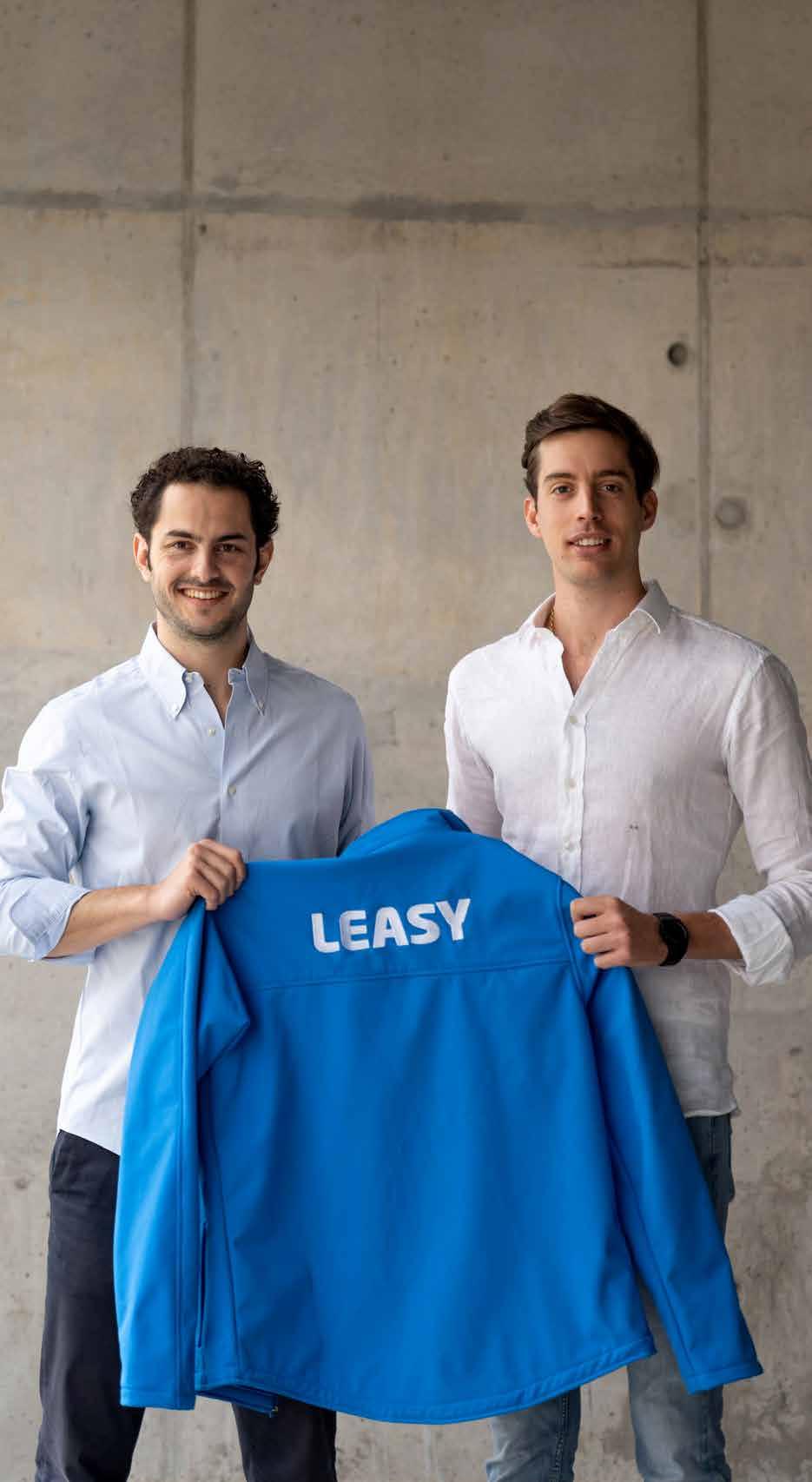
Our partnership with Lendable has grown to support their mission of expanding financial access across Africa, Asia, and Latin America through innovative fintech lending. Lendable provides debt capital to tech-enabled companies that serve MSMEs and underbanked individuals who traditionally lack access to fair credit and financial services. We currently support both their MSME Fintech Credit Fund, and their newest Opportunities Fund. Together, these funds create infrastructure for financial inclusion while promoting wealth creation, economic growth, and gender equality across emerging markets where traditional banking often fails to reach those who need it most.
Lienda Kavindele, Senior Associate Director of Impact and ESG at Lendable said of our partnership, “Calvert Impact Capital joined Lendable as one of the first-mover investors in Lendable MSME Fintech Credit Fund with a $7 million commitment in 2021, providing early support that added credibility and momentum at first close. This came at a critical moment in Lendable’s growth, as the team was building out its financial inclusion strategy and seeking to attract other mission-aligned investors. Calvert Impact Capital’s decision to subsequently invest $10 million in Lendable Opportunities Fund in 2024 further demonstrated confidence in the platform and helped diversify the capital base to scale across emerging markets. Their consistent support has allowed Lendable to mobilize capital into inclusive fintechs serving underserved households and MSMEs, directly advancing the mission to expand access to finance and improve livelihoods.”
“Beyond financing, Calvert Impact Capital has been a valuable partner in amplifying Lendable’s voice in the impact investing community…the wider Calvert Impact Capital team [has] consistently supported Lendable’s events…[and] also been an active participant in Lendable’s annual impact calls and other webinars, further demonstrating their commitment to advancing the impact agenda. In addition, they have showcased Lendable’s work in their own impact reports and invited the Co-Founder and Head of Impact to speak with their Board. This visible endorsement has strengthened credibility, opened doors with other investors, and reinforced alignment as mission-driven organizations.”
Thirty years ago, the MacArthur Foundation awarded a $1.5 million program-related investment to a fledgling “high-impact fund” now known as Calvert Impact Capital. This early risk capital helped to launch much more than a fund. From the start, Calvert Impact Capital has proven to be a visionary, innovative, and deeply missiondriven institution, a financial intermediary that is high-impact but also scaled and sustainable. To date, Calvert Impact Capital has mobilized individual and institutional investors through its pioneering Community Investment Notes® and deployed loans and investments around the world – essential capital to fight poverty, deliver affordable housing, improve health, transition to clean energy, and so much more.
We know that this outstanding track record paves the way for Calvert Impact Capital to achieve even more in the decades to come. Thank you and congratulations, Calvert Impact Capital. Together with all of your supporters, partners, and everyone you serve, your work and leadership are helping to build a better world for us all.”
–Debra Schwartz, Managing Director for Impact Investments at the John D. and Catherine T. MacArthur Foundation

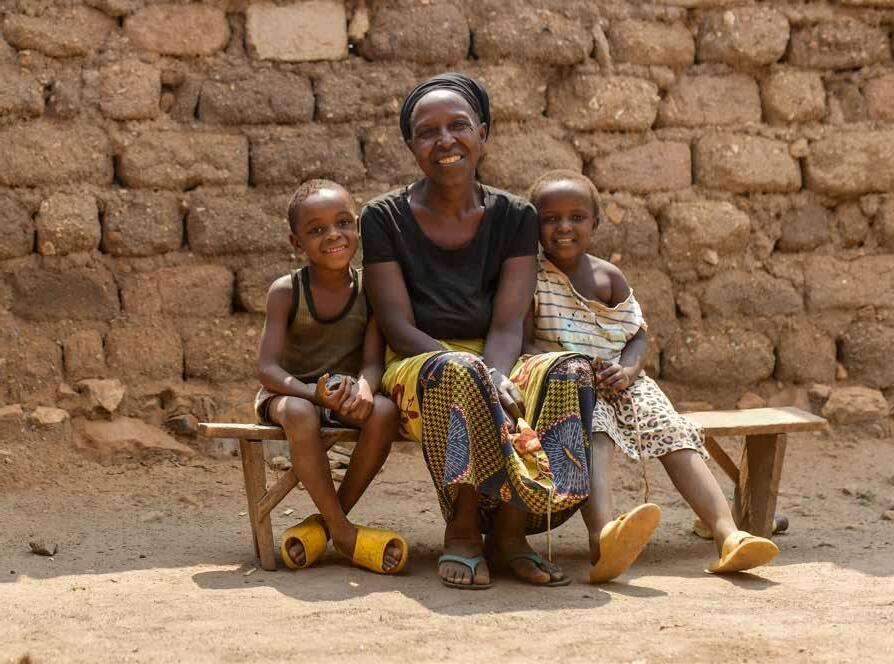
Calvert Impact Capital has had a major influence on our family's journey and experience over the years—an impact that spans two generations and continues to influence all of us in ways that significantly contribute to the fruition of our shared dream and purpose. It is a given for us that we could not have achieved or experienced the gratification, meaning, perspective, learning, and satisfaction of putting our values, priorities, hopes, and dreams to work as it relates to our relationship with money and utilizing it in service to the highest good.”
–Tom Clayton, personal investor since 2009
Calvert Impact Capital has been Praxis’ resourceful and everpresent partner in community development investing for over 25 years. I can attest that their vision for impacting the lives of those on the margins and even the planet itself is matched only by their commitment to innovation and excellence. Praxis has been honored to work with them in achieving our own community development investing goals.”
–Mark Regier, Vice President of Stewardship Investing, Praxis Investment Management™
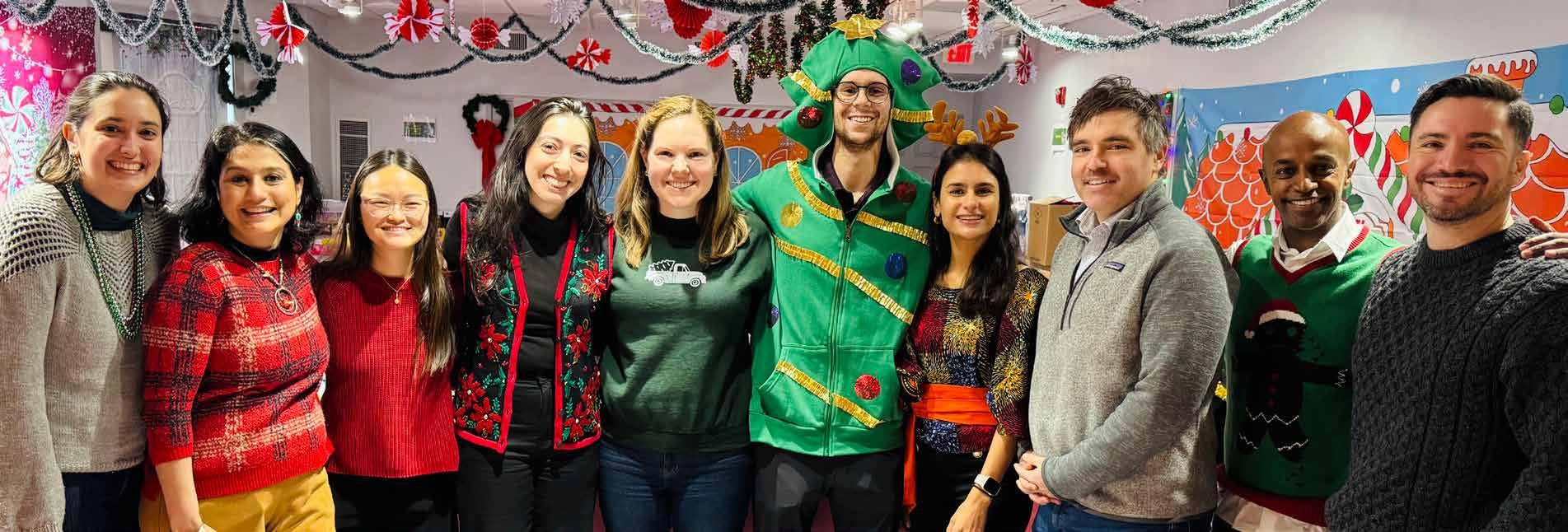
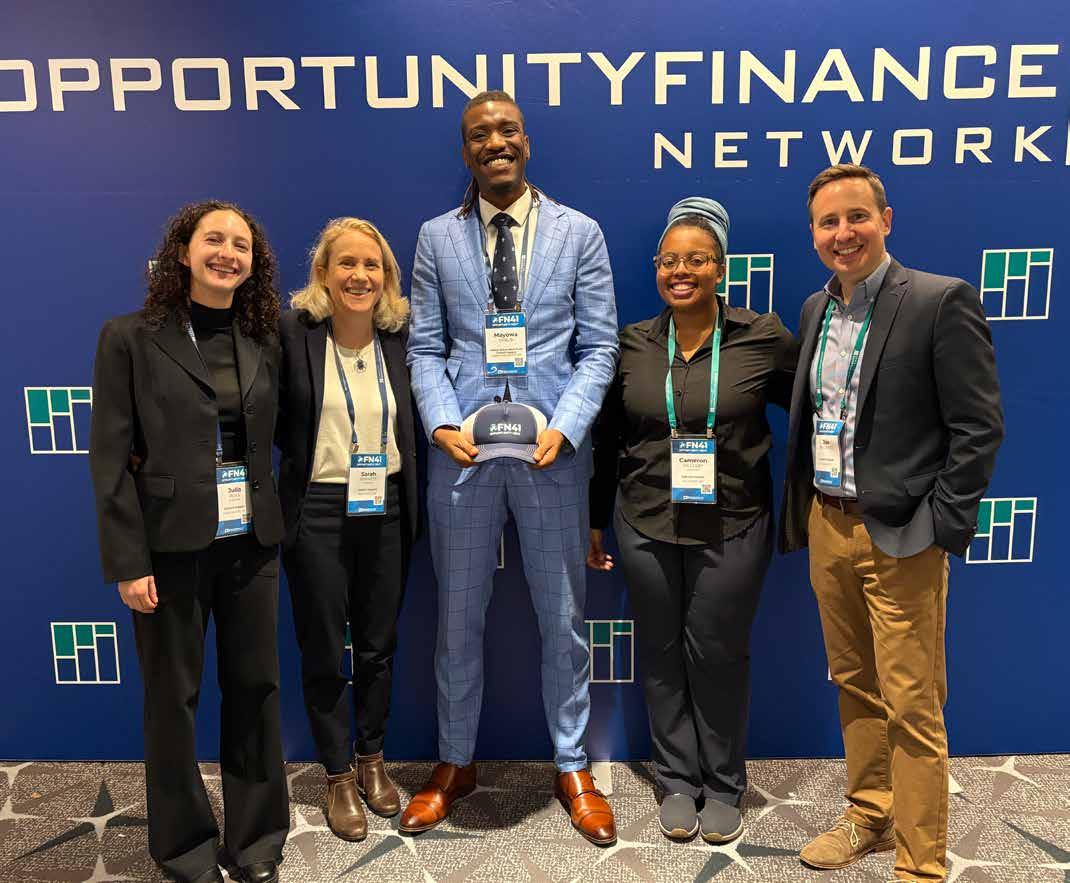
Every day, through my work, I have the opportunity to strive for justice and equity—and I am surrounded by colleagues who share the same passion. It is rare to find a place where the mission is so deeply woven into both the work and the people.”

–Sarah
Bennett, Director of Strategy
Our team is the heart of everything we accomplish at Calvert Impact. With diverse backgrounds spanning banking and finance, community development, international development, public policy, and beyond, our staff bring both the technical expertise and real-world perspective needed to steward investor capital effectively. We're united by a shared passion for building a better world through investment. From understanding the nuances of local markets to structuring innovative financial products, our team's collective expertise enables us to get capital working where it's needed most. As part of the broader Calvert Impact platform, we embody our motto "One Team, One Fight," working together to fulfill our mission of connecting capital to communities. This collaborative spirit, combined with our deep commitment to impact, has carried us through global challenges while keeping us focused on what matters most: creating meaningful change through investment. 55% 38% 45% 60% 52% 17 have lived in different countries identify as a first- or second-generation immigrant have experience running a business regularly volunteer are parents of future impact investors states our team calls home
One of the best parts about working for Calvert Impact is our diverse portfolio. We have borrowers working all the way across the globe and in our backyards, on issues like solar energy and managing affordable housing and financing small business. Our borrowers do incredible work, and it's easy to be passionate about that work when you see the outsized impact they are able to have in the face of the challenges facing the world right now.”

–Caitlin Rosser, Director of Impact Measurement and Management
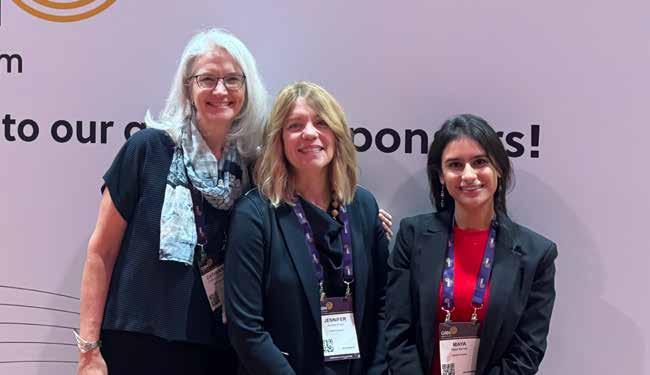
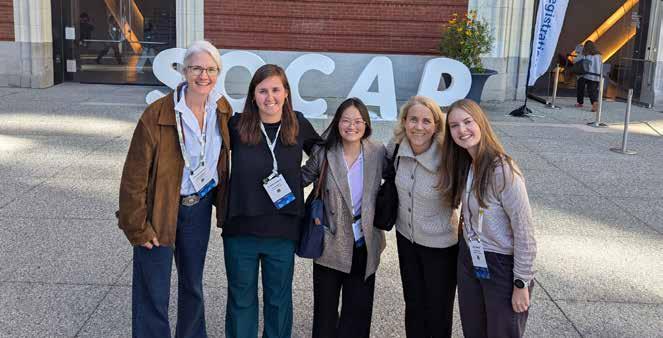
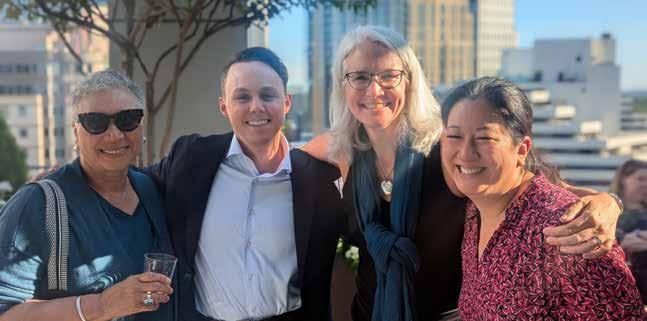
The culture of collaboration and the deep sense of commitment to one another really resonates with me. There’s a genuine willingness across the board to jump in, help each other out, and move our work forward together. That shared sense of purpose, not just in what we do, but in how we show up for one another, is powerful. Looking ahead, I’m excited about how we continue to scale that impact, both internally and with the communities and partners we serve.”

–Emmanuel Beryhun, VP, People
Calvert Impact Capital invests in sectors and geographies whose needs are not met by traditional capital markets. We work with the organizations to help them grow and establish a positive record of performance, repayment, and returns. With a successful track record, they can prove their business models and ideally attract more capital from traditional capital providers to further
scale their work. When organizations in the Community Investment Note® portfolio can go directly to mainstream financiers, this sometimes means they do not need our capital anymore and they “graduate” out of the Community
Investment Note® portfolio. We consider this a success! Read more about two recent success stories from our portfolio, below.

Community Reinvestment Fund (CRF) is a community development financial institution (CDFI) based in Minneapolis, MN. Founded in 1988 to improve lives and strengthen communities, CRF offers financial products and services to address the barriers faced by small businesses operated by historically excluded individuals. Calvert Impact Capital made its first loan to CRF in 1997 and continued the lending relationship for nearly three decades.
“At CRF, every program is designed to support small businesses, including vital working capital. We’re addressing a longstanding need in our communities while staying responsive to the evolving needs of our borrowers.” All of CRF’s programs are focused on filling capital access gaps for small businesses, including working capital. “We’re answering a need that we know is longstanding but know that we also
need to be responsive to our borrowers’ needs,” said Alexis Dishman, Chief Lending Officer at CRF.
Our relationship with CRF exemplifies how Calvert Impact Capital's work in US community development has evolved over the last three decades. Our strategic alignment allowed us to first build a strong partnership as lender and borrower, then expand to collaborate on other small business lending and technical support programs, including the Recovery Funds and the Access program. Their attention to the needs of small business owners aligns with our approach to working with partners who are rooted in community, and we are proud to continue our work together.
Read about the success of CRF and more at calvertimpact.org/success.
In 2018, Calvert Impact Capital made a $1 million loan to the Yuba I Forest Resilience Bond (FRB) project to protect 15,000 acres of forestland in the North Yuba River watershed in California. The FRB is a financing mechanism developed by our partner Blue Forest, along with the World Resources Institute, to raise private capital to fund the upfront costs of forest restoration. Blue Forest is a conservation finance nonprofit that brings communities, finance, and science together to restore and protect our forests and watersheds.
Forest restoration helps reduce the risk of severe fire, improves watershed health, and protects water resources. It is an intricate, multi-step process that carefully tailors treatments, such as vegetation thinning, prescribed burning, invasive species removal, and planting native plant species, to the unique attributes of each landscape. By removing overgrown vegetation that fuels wildfires and restoring native habitat, forest restoration is key to strengthening the resiliency of forests and the communities that rely on the ecosystem benefits provided – including clean water, air, and recreation.
To continuously conduct forest restoration efforts, land managers like the USDA Forest Service need reliable and consistent funding to engage and pay experienced contractors; but with restrictions in federal budgets, it can often take years to fund this much needed work. The upfront capital provided by the FRB, through investors like Calvert Impact Capital, allows the pace and scale of these restoration treatments to be accelerated and increases the US Forest Service’s ability to hire local contractors, supporting the local economy.
Calvert Impact Capital's partnership was pivotal to the launch of the Yuba I FRB. Zach Knight, CoFounder and CEO of Blue Forest, said of the partnership: “As a new asset manager, credibility was the most important and Calvert Impact Capital's name helped, as people knew the name.” Calvert Impact Capital also provided feedback on structuring and gave the Blue Forest team perspective on what institutional lenders would want to see in a transaction. Calvert Impact Capital's partnership continued to carry credibility for Blue Forest, which leveraged the success of Yuba to launch the Yuba II FRB in 2021. Since then, Blue Forest has expanded beyond the Yuba region, launching new FRBs and broadening their financial offerings through the FRB Catalyst Facility, which is expected to finance at least $50 million in forest restoration.
Completed in 2023, the Yuba FRB protected 15,000 acres of forestland, helped to restore 2,675 acres of ecosystems and 27,601 acre-feet of source water supply, sustained 72 jobs, and returned all investor capital.
Read about the success of the Forest Resilience Bond and more at calvertimpact.org/success.

As a new asset manager, credibility was the most important and Calvert Impact Capital's name helped, as people knew the name.”
–Zach Knight, Co-Founder & CEO of Blue Forest
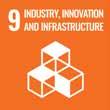
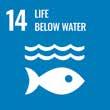
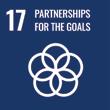

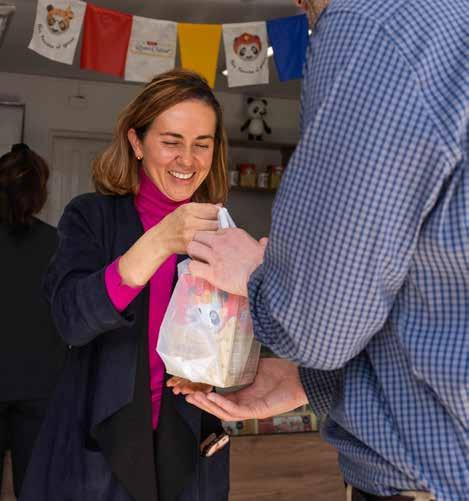
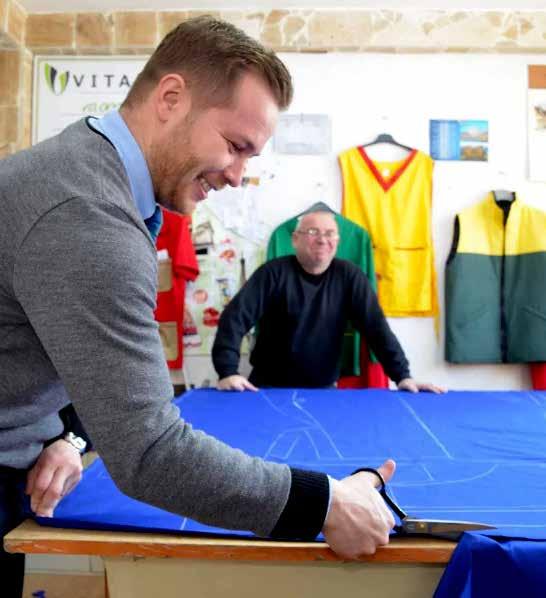
Chinese, Japanese, Filipino, Korean, Asian Indian, Vietnamese, or of Asian Descent
Native Hawaiian, Samoan, Guamanian, Chamorro, or other Pacific Islander
Mexican, Mexican American, Puerto Rican, Cuban, or of Hispanic, Latinx, Spanish origin

Calvert Impact is a founding Signatory to the Operating Principles for Impact Management (the Impact Principles), a standard adopted by over 180 leading global impact investors managing $580 billion. The Impact Principles are a set of best practices that ensure impact considerations are integrated into the entire investment lifecycle and that lessons learned are continuously incorporated into portfolio management. Each year, we publish an annual Disclosure Statement to disclose the alignment of our Impact Measurement and Management (IMM) practices against these principles. Our disclosure includes the results of our independent verification, conducted by BlueMark, the leading provider of independent
impact verification and intelligence for the impact and sustainable investing market. The Community Investment Note® portfolio continues to receive Advanced ratings (the highest score possible) across all the Impact Principles, something only a handful of global investors have achieved. This also earned us a spot on BlueMark’s Practice Leaderboard, which features impact investors with “best-in-class” impact management practices. These robust impact management practices guide how we manage our portfolios and the impact performance of our portfolio partners.
A Deep Dive into the Alignment of our Impact Practices with the Impact Principles

Investment Lifecycle Stage: Strategic Intent
It is critical to establish strategic impact objectives, consistent with the overall investment strategy that guides the fund or portfolio. This ensures strategic alignment across investors and investees and that strategic intent is documented in governing documentation. Covers Impact Principles 1 and 2

Investment Lifecycle Stage: Origination and Structuring
Why it’s important: A consistent approach to origination, due diligence, and structuring is critical to ensure the strategic intent of a fund or portfolio is executed during the due diligence stage, no matter who is doing the underwriting. This approach should also comprehensively assess not just the final impact on end clients, but also the investor’s contribution to the achievement of impact, and that all relevant impact risks are assessed, addressed, monitored, and managed. Covers Impact Principles 3, 4, and 5

Investment Lifecycle Stage: Portfolio Management
Why it’s important: Just as important as due diligence, is ensuring the impact expected before investment is monitored post-investment and compared to expectations. If impact achieved differs from the impact expected, the investor should determine why and respond appropriately – this is the “management” in “impact measurement and management.” Covers Impact Principle 6

Investment Lifecycle Stage: Impact at Exit
Why it’s important: An investor’s work is not done when an investment exits portfolio or a loan repays; in fact, this eventuality is often planned for during the due diligence stage, where an investor structures investments to ensure the best impact outcomes during an exit. If the investor has discretion over the exit, then “responsible exits” can be conducted by considering the effect of an exit on the long-term sustainability or duration of the impact achieved. It is also critical to review and document the impact achieved and lessons learned, in order to improve future decision making to optimize impact. Covers Impact Principles 7 and 8
Our Portfolio’s Alignment Rating:
IMM is the process of identifying the impact we seek to achieve, assessing the projected and realized impact of our investments on communities and the planet, and managing our investment process in order to maximize positive impact and minimize the negative. To achieve these goals, we embed our IMM tools within each step of the investment process—from due diligence to annual reporting to repayment. We use internal and external data sources to collect and measure the impact reported in this year’s impact report. Community Investment Note® portfolio sector and geographic exposure is expressed as of December 31, 2024 and is sourced from internal systems. To gather Community Investment Note® portfolio impact data we employ industry-aligned indicators and best practices, including IRIS+ and the 5 dimensions of impact, to collect the most relevant impact data and alleviate the reporting burden on our portfolio partners. IRIS+ is aligned with most, if not all, other industry and sector reporting initiatives, such as the 2X Challenge, AERIS, CDFI Fund, GOGLA, among others. More information on how we use IRIS+ can be found in our IRIS+ Use Case
Most impact data is self-reported by portfolio partners on an annual basis, through custom or standard reporting required by our investment documents. Our IMM and Investments teams work together with our portfolio partners each year, to ensure we are requesting data for the most appropriate impact metrics and to collect, aggregate, quality check, and analyze the impact data. We have not independently audited the data and information provided by portfolio partners or other third parties.
Unless otherwise stated, all impact data reflects performance in our portfolio partners’ fiscal year 2024, which varies depending on the portfolio partner but is typically as of December 31, 2024. Of portfolio partners who were required to report or make impact data available for FY 2024, 100% reported. This report reflects the aggregate total of this data.
While our investments are a crucial portion of our portfolio partners' financing, it is important to note that this impact was not financed solely by our capital and we do not “take credit” for the full impact reported in this report. The impact reported on behalf of our portfolio partners is a full picture of the impact they had on the environment, in the communities they serve, and on the markets in which they operate. Portfolio partners may utilize estimation techniques and proxy indicators where appropriate and in accordance with best practices, in order to capture this full picture of impact.
Cumulative data reported is dependent on the timeframe in which we began collecting the metrics based on relevancy to and the makeup of our Community Investment Note® portfolio. Calvert Impact Capital has been using proceeds from the Community Investment Note® portfolio since 1996, after we raised our first investor dollars in 1995. Impact data was not tracked in the same way or with the same rigor in the early years of impact investing, as compared to the rigor with which we measure and manage impact data now. As such, some data points have been collected diligently since 2011, and some metrics did not become relevant to be tracked until 2015 or later. For example, our first specific climate-focused investments were made in 2014 and 2015, and therefore some climate-specific impact metrics were not tracked until 2015 or 2016. With a goal of transparency, we have provided the data for the longest time period for which the metrics were tracked; as such, some metrics are expressed as starting in 2011 and some are expressed as starting in later years.
The sector pie charts on page 22 depict the evolution of the sectors in which we invested from 1996 to 2015, where we remain active today. We’ve chosen to report the sector breakdown for each of these years to show the continuous evolution of the sectors in which we invest through the Community Investment Note® portfolio. 1996 marks the first year of deployment into our initial sectors Community Development, Affordable Housing, and Microfinance, whereas in 2015 we expanded our reach to include climate-related investments. Data for the 30 Years of Investing for Impact section on pages 4 and 5, including the number of financial advisors, unique investors, deployments figures, and country data are sourced through our internal systems.
Demographic data reported is collected as part of our annual impact data collection process, which includes questions on the gender, race and ethnicity, and veteran status of our portfolio partners’ Boards of Directors or ownership, senior leadership, staff, and clients. This data is current as of October 2025. Demographic data for our Boards, senior leadership, and staff are collected using a combination of HR systems and a team survey. All team members are given opportunities to self-identify and opt out of the survey. This data is current as of September 2025.
Gender data is collected using categories for men, women, and non-binary. For race and ethnicity data, we utilize demographic categories based on US Department of Labor and US Census surveys, customized to more appropriately reflect our portfolio partners' operations and end clients. The categories included in any “people of color” cross-cut are: Black or African-American, or of African Descent; American Indian or Alaska Native; Chinese, Japanese, Filipino, Korean, Asian Indian, Vietnamese, or of Asian Descent; Native Hawaiian, Samoan, Guamanian, Chamorro, or other Pacific Islander; Mexican, Mexican American, Puerto Rican, Cuban, or of Hispanic, Latinx, Spanish origin; Middle Eastern or North African; Person of color, multi-racial, or multi-ethnic. We acknowledge and reinforce that race, ethnicity, and gender are singular elements of identity, and not all people of the same race, ethnicity, or gender have the same lived experiences. We offer these categories based on emerging best practice in order to demonstrate representation in our own company as well as in our portfolio partners' organizations and outreach. Full disclosure of all the gender, race, and ethnicity categories across our company and portfolio is on page 35. Race and ethnicity percents may not add to 100% as respondents may choose to identify with more than one answer choice.
Portfolio partner and investor testimonals on pages 23-24, 26-27, and 30-31 reflect the personal experiences and opinions of portfolio partners and their investees and investors, and do not guarantee the same results for others.
External data sources were also used for this report. For the Our 3 Layers of Impact, the statistic on page 3 was sourced from the Boston Consulting Group The information in the Renewable Energy sector overview on page 14 was sourced from the National Institute of Environmental Health Sciences The information in the Gender Equity overview on page 18 was sourced from the Harvard Center for International Development
Source Capital; Vivriti Capital; Ocean Clean Up Project courtesy of SeyCCAT; David Rorick courtesy of Gulf Coast Housing Partnership; AHC, Inc.; Partner Community Capital; FAHE; Dahlia School of San Francisco Elementary courtesy of Wildflower Schools; Advanced Global Capital; Volunteers of America National Services; Central City Concern; Global Communities; responsAbility Micro and SME Finance Debt Fund; Greenline Ventures Small Business Capital Fund I; Accial Capital; New Energy Capital; Sunwealth; Finance in Motion courtesy of eco.business Fund in Latin America and the Caribbean, and Carlos Romero - 1espacio; Agri Exim and responsAbility Climate Smart Agriculture & Food Systems Fund courtesy of responsAbility Investments AG; Sunwealth; Partner Community Capital; BURN Manufacturing and Africa Go Green courtesy of Cygnum Capital; Finance in Motion courtesy of eco.business Fund sub-fund for Sub-Sahara Africa; Finance in Motion courtesy of SANAD Fund for MSME and LKO; Advance Global Capital; Lendable Opportunities Fund; Self-Help Enterprises; Affordable Homes of South Texas; Accion Opportunity Fund; Greenline Ventures Small Business Capital Fund I; Volunteers of America National Services; Staci Brimer courtesy of Gulf Coast Housing Partnership; Catholic Relief Services courtesy of Azure Source Capital; Accion Opportunity Fund; Finance in Motion courtesy of eco.business Fund sub-fund for Latin America and the Caribbean; Bboxx Limited and Africa Go Green courtesy of Cygnum Capital; Self-Help Enterprises; Vivriti Capital Limited; Seaweed Bioplasics Project courtesy of SeyCCAT; VisionFund International; Sundrops Montessori courtesy of Wildflower Schools; Central City Concern; Resident Ownership Capital, USA; Greenline Ventures Small Business Capital Fund I; Lendable Opportunities Fund; Greenline Ventures Small Business Capital Fund II; DelAgua and Africa Go Green courtesy of Cygnum Capital; Calvert Impact team at 2025 Opportunity Finance Network Conference; Calvert Impact team at volunteer event; Calvert Impact team at 2025 SOCAP conference; Calvert Impact team at staff event; Community Reinvestment Fund; Forest Resilience Bond Fund I courtesy of Blue Forest; Accion Opportunities Fund; Global Communities; Advance Global Capital; Sunwealth; UN Sustainable Development Goals (SDG) branding available from https://www.un.org/sustainabledevelopment/news/communications-material/.
Impact and portfolio data collection and evaluation: Payton Carter, Aditya Gulwadi, Ralph Lam, Brenda Medina-Maldonado, Caitlin Rosser, Eileen Ung, Annette Vogel, Helen Zhang
Production and content: Lily Jones, Brenda Medina-Maldonado, Laura Mixter, Leigh Moran, Cameron Oglesby, Caitlin Rosser, Annette Vogel Design: KP Creative Strategy